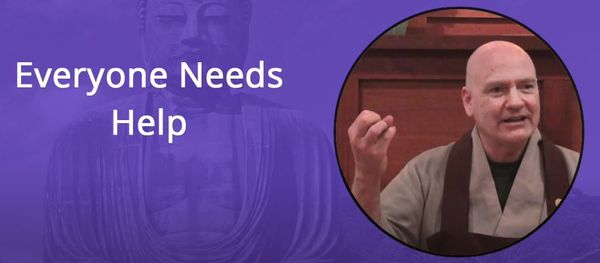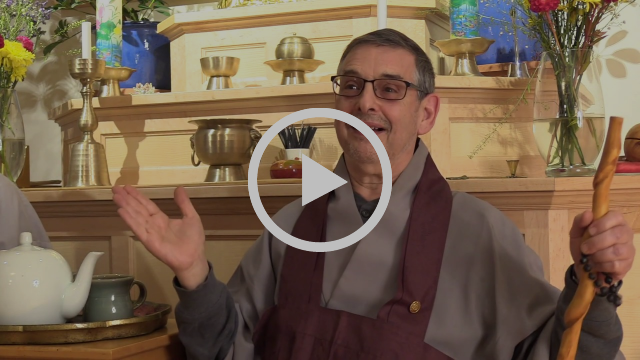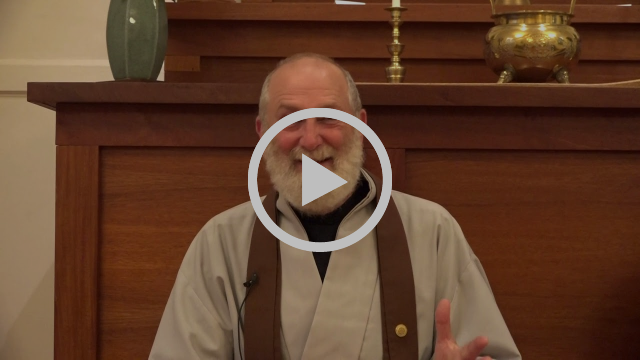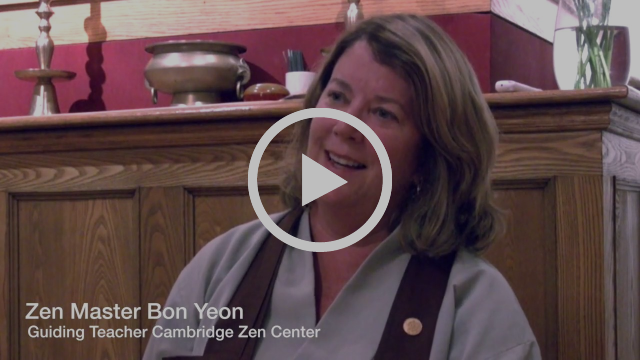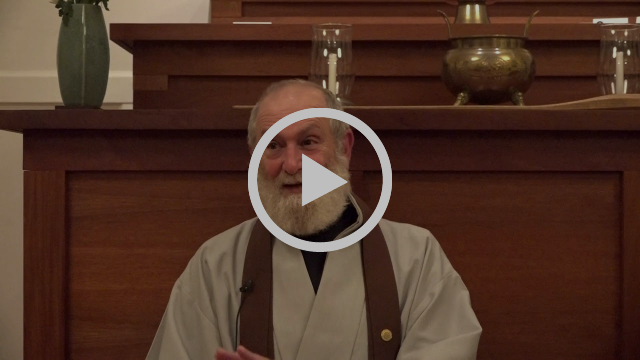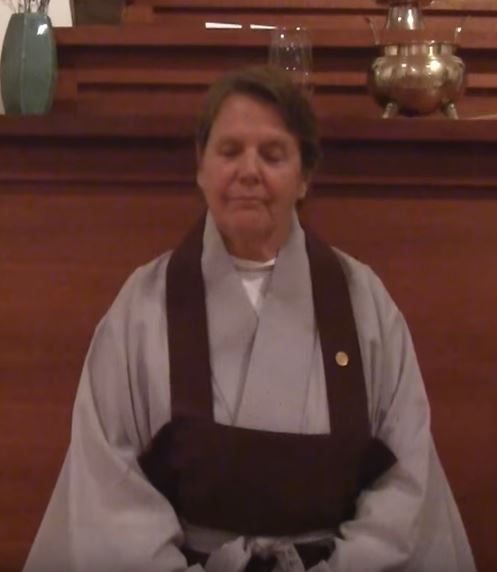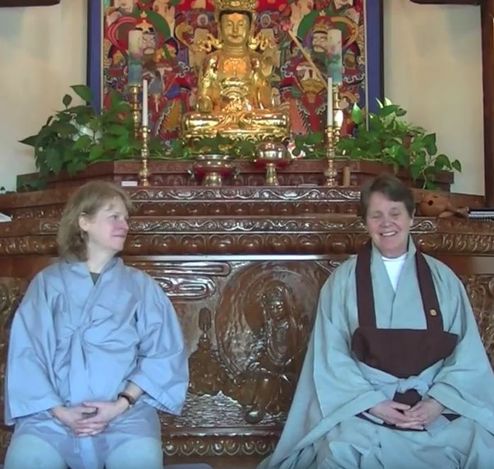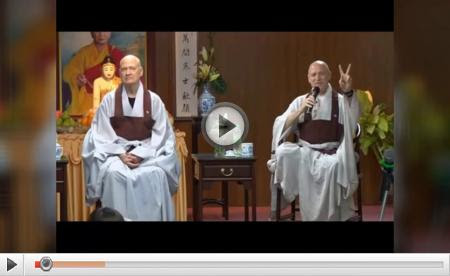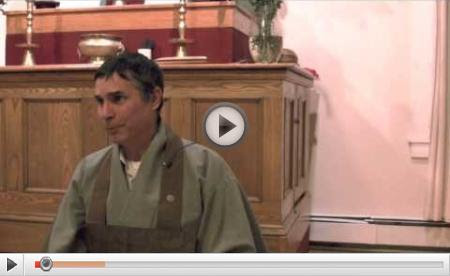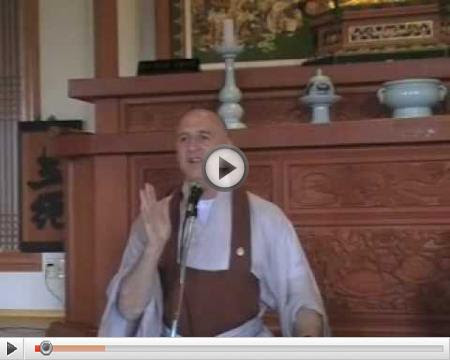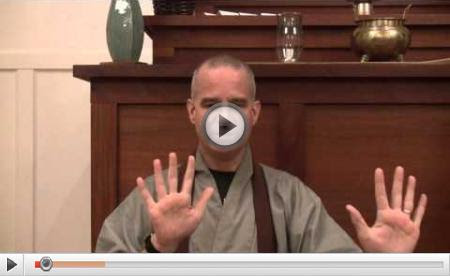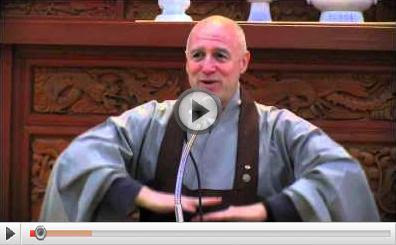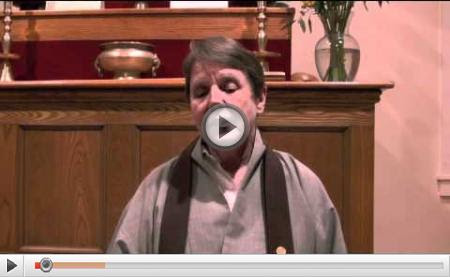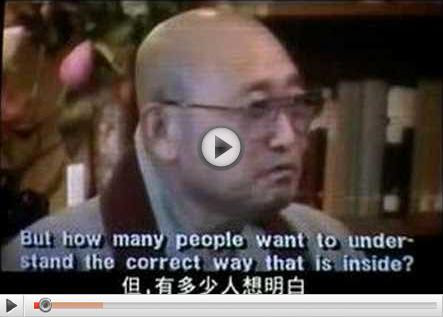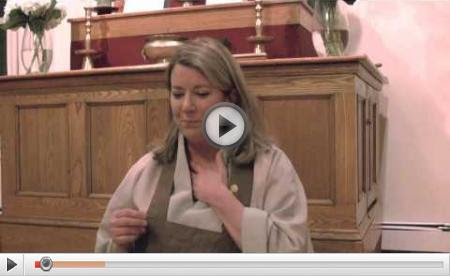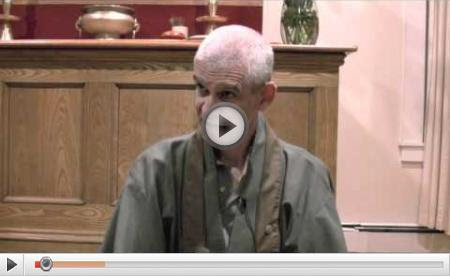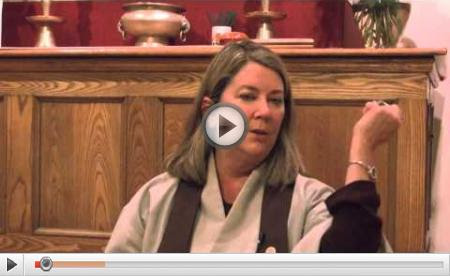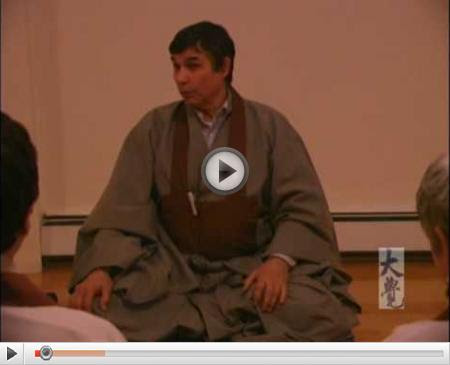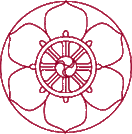-
0:00/5:32
-
0:00/7:20
The Kwan Um School of Zen
Weekly Teaching Piece
Archive
|
|
|
|
|
|

Great Love
In our teaching tradition, we have a wonderful tool for working with our tendency to move away which is don’t know. It’s through the practice of don’t know that we can discover a genuine way to be safe in the world. Don’t know brings us closer to whatever the world presents, moment to moment. Often, we respond to life’s demands by saying to ourselves, “I don’t know what this is and I don’t like it,” or we say, “I know what this is, I’ve been here before, and I don’t like it.” And we move away.
So separation appears, and with separation comes a tremendous loss of safety and intimacy. We pull back from the great love that we so much need. We chant about Great Love in our chants every day: it’s the "dae ja" in "dae ja, dae bi". Traditionally in Buddhism, we say that Great Love is the vow to help all beings have happiness and the causes of happiness. That’s what we commit to when we begin our practice and every day, when we chant, we renew the vow to manifest Great Love.
With a deep and mindful breath, DVZC recognizes the passing from this world of the beloved teacher the Venerable Thich Nhat Hanh.


Practice is not about getting;
it is about letting go.
The more you let go,
the more you’ll find yourself getting.
New Year Poem
|

Four Kinds of Anger
Berkeley, California November 4, 1976
Dear Soen Sa Nim,
How are you, and how is it to be back East again? We miss you here! I hope the seven-day Yong Maeng Jong Jin is going well.
It is strange how things happen, sometimes backwards. I felt very clear after the weekend you were here (even though during the weekend I thought all the dry cleaning in the world would not get my mind clear!). But two days ago I suddenly found myself screaming mad at my son to the point that I even tried to slap him. I felt just terrible that, after going to three Yong Maeng Jong Jins in five weeks' time, sitting every day, etc., I could revert to such a totally angry mind. And over such a small thing! I went to my room and lay on my bed and started to cry in despair at myself -- and then an odd thing happened. I realized that something very important had just happened and crying was not the answer.
I realized that it was time to stop worrying and feeling guilty about him and DO something to change his environment and therefore his karma. Right now he is in a very poor environment; school is not challenging, this home is not making him grow, his friends are getting into trouble and not interested in much except excitement. He has always resisted every effort to change school or to move or whatever -- and I always have given in, perhaps feeling I didn't really know the "right" answer anyway or perhaps afraid he would reject me.
This time I saw what had to be done, clear as clear: he needs to go away to a good school for at least a while, whether he likes it or not, whether he hates me for it or not. I saw that I was willing to be "100%," finally -- even if I turned out to be "wrong." I think I really surprised him -- because I got up off my bed and walked into the kitchen where he was and told him all that -- and also that I was no longer willing to let him push my anger button like that.
At first he just said "no" loud and clear. But for once I did not waver but told him that I felt very strongly he should give it a try -- what did he have to lose? And I told him that unless he could begin to challenge himself to try something new, he would never experience much in life.
Just before we sat Zen last night, he came in and told me he had changed his mind and would go to the school for a day and see what he thought.
I feel so good, Soen Sa Nim. I just wanted to share this with you very much. It has so much to do with the "dropping ashes on the Buddha" kong-an -- I feel as if I am making some progress toward attaining an "answer" to it .... which seems (for me anyway) to have to do with that thing you keep telling us, that "Zen is believing 100% in yourself," something I have just never been able to do. I've discovered that I believe 100% in my love for my son, to the point that I am willing for him to reject me or even for my idea to fail. He's just not old enough to make total decisions for his life in every way. This is one I have to make for him. And evidently he went inside himself, knew I was right in his heart, and decided to go along with it.
Anyway -- he is a different kid today, and whatever happens, yesterday was perhaps a turning point for us both.
Your teaching is beginning to get through to me, Soen Sa Nim -- thank you very much.
Love, Diana
November 10, 1976
Dear Diana,
Thank you for your letter. How are you and Ezra and all your family? We have just finished the seven-day Yong Maeng Jong Jin.
After going to Yong Maeng Jong Jin your mind was clear. A clear mind is like a clear mirror, so when anger appears, angry action appears. You love your son, so you were angry. Is this correct? Don't check your mind -- at angry time, be angry. Afterwards, checking is no good.
But your previous anger and the anger you talked about in your letter are different. Before Yong Maeng Jong Jin, it was attached anger; after Yong Maeng Jong Jin your anger was only reflected anger. If you do more hard training, the reflected anger will change to perceived anger. After more hard training, perceived anger will disappear. Then you will have only love anger -- inside you will not be angry, only angry on the outside. So attached anger, reflected anger, perceived anger, love anger -- all are changing, changing, changing. Anger is anger; anger is the truth. Don't worry, don't check yourself it has already passed. How you keep just-now mind is very important.
Attached anger sometimes lasts for three hours, sometimes three days, and does not quickly return to love mind. When you were crying, you had reflected anger; it did not last long. Soon you returned to your mind that loves your son, and you knew what to do to help him. You believed in yourself 100%. After more hard training, you will have perceived anger. You will feel anger but will not show it; you will be able to control your mind. Then afterwards, you will have only love anger, anger only on the outside to help other people -- "You must do this!" -- but no anger on the inside. This is true love mind.
You had already done three days of hard training during Yong Maeng Jong Jin, so your mind light was shining to your son's mind. Everything is from the primary cause; primary cause means karma. If your karma disappears, then the primary cause disappears. If the primary cause disappears, then the result will disappear. Your son's bad karma and your karma are closely connected, so if your karma disappears, then your son's karma will also disappear. This is your mind's light shining to your son's mind.
Buddha said, "If one mind is pure, then the universe becomes pure." So, if your mind is pure, your world will be pure. Your world means your family, your friends, your country -- all of them. So changing your son's school is a very good idea. Sometimes, when the situation is bad, everything is bad; when the situation changes, then it is possible to change everything.
So, your mind light is already shining to your son's mind. First, what is Great Love? Great Love means believing in yourself 100%. Then everything is no problem. I read your letter, and I also felt very good. All this is from your strong practicing.
But, you must finish your homework. Somebody comes to the Zen Center, smokes a cigarette, blows smoke and drops ashes on the Buddha. How do you fix the cigarette man's mind? How do you correct him? Quickly, quickly, answer me!
I hope you only go straight -- don't-know, which is clear like space, finish your homework, attain Enlightenment and Great Love mind, and save all beings from suffering.
Yours in the Dharma, S. S.
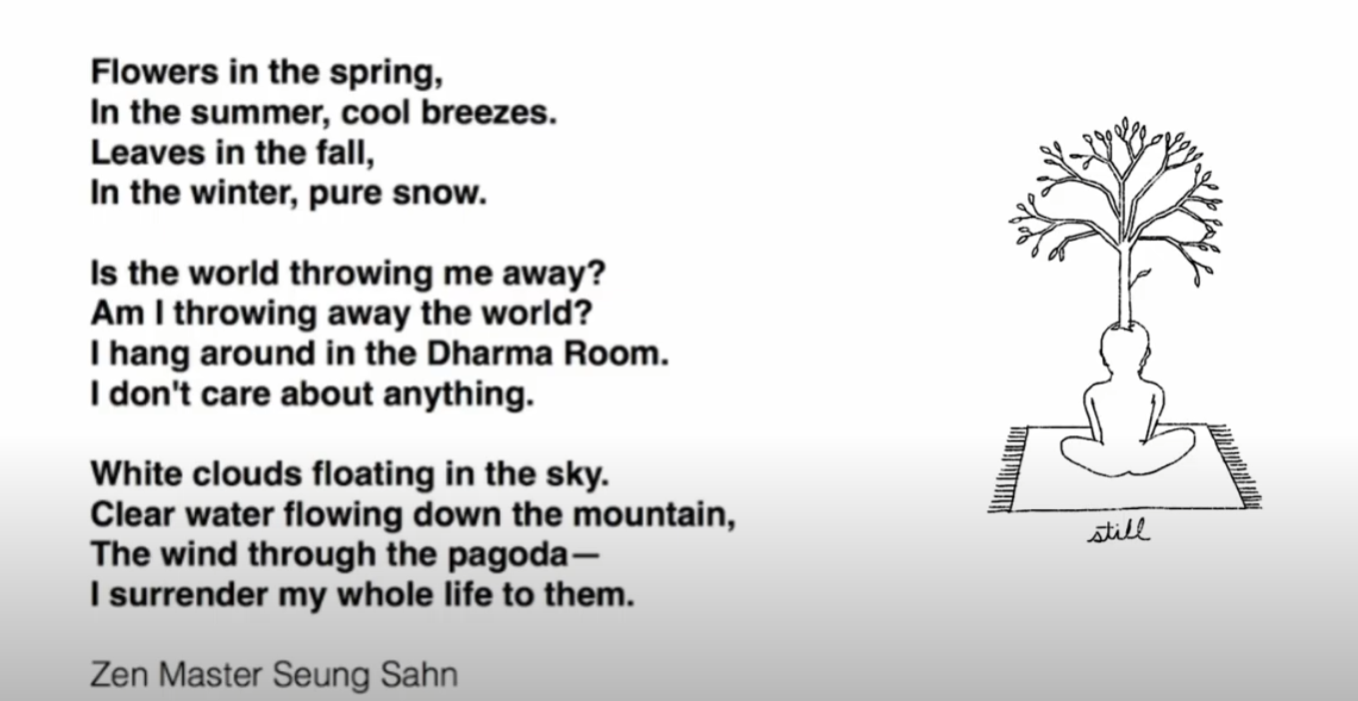
Just Seeing is Buddha-nature
If you want to understand the realm of Buddhas.
Keep a mind that is clear like space.
Let all thinking and external desires fall away. Let your mind go anyplace with no hindrance.
Then what is keeping a mind that clear like space?
If your mind is not clear, listen to the following:
It is enlightenment nature.
Above is the dwelling place of all Buddhas;
Below are the six realms of existence.
One by one, each is complete.
One by one, each thing has it.
It and dust interpenetrate.
It is already apparent in all things.
So, without cultivation, you are already complete.
Understand. Understand. Clear, clear.
(Holding the Zen stick:) Do you see?
(Hitting with the Zen stick:) Do you hear?
Already you see clearly.
Already you hear clearly.
Then what are this stick, this sound, and your mind?
Are they the same? Or different?
If you say ―same,‖ I will hit you thirty times.
If you say ―different,‖ I will hit you thirty times.
Why?
3 x 3 = 9
from The Compass of Zen by Zen Master Seung Sahn





By Rebecca Otte JDPSN
From Inka Speech
Primary Point: Summer 2021, Volume 38, Number 2


By Dennis Duermeier
From Inka Speech
Primary Point: Summer 2021, Volume 38, Number 2

By Dyan Eagles JDPSN
From Inka Speech
Primary Point: Summer 2021, Volume 38, Number 2
 Redwood Dharma
Redwood Dharma
Redwood trees have lived on Earth for over 240 million years.
Homo sapiens, about 200 thousand.
Despite massive size,
old growth redwood
root systems are shallow.
Trees reach 350 feet tall
yet don’t topple in the strongest winds.
Each one’s roots interlace
with its neighbors’ roots,
creating a vast network of support
unseen on the surface.
They hold on for a thousand,
two thousand years, maybe more,
all the while showing us
how to grow up.
-Laura Grace Weldon

What is Primary Point?
I often talk about primary point. What is primary point? When you have a scale and there is nothing being weighed, the indicator points to zero. You put something on it, and the pointer swings to "one pound." You take it off, the pointer goes back to zero. This is primary point. After you find your primary point, then good feelings come, bad feelings come, so your pointer swings in one direction or the other. But this doesn't matter. Don't check it. When the feeling is over with, the pointer swings back to zero.
But if you haven't found your primary point, then it is like taking a heavy object off of the scale and having the pointer stay at "ten pounds." Or the pointer moves back only part-way, it doesn't go completely back to zero. Then you have a problem. Your scale does not weigh correctly. Maybe if you put a heavy object on it, it will break completely.
So first you must find your primary point. Then you must keep it very strongly.
A taxi has weak shock absorbers, so it hits a small bump and bounces up and down. A train has strong shock absorbers, so it is very steady. If you keep your primary point, your mind-spring will become stronger and stronger. You will meet big problems and your mind will move less and less. A big problem comes, your mind moves, but soon returns to primary point. Finally your mind will be very strong; it will be able to carry any load. Then saving all people is possible


By

Effort: My Father Walking to the Other Shore
When I started meditation I was very determined. So, when I was sitting in meditation I was giving all I had. After some time I noticed that there was something not in balance. So I started to check: Maybe I'm putting in too much effort. Maybe I should fine-tune my effort. We call that checking mind. Tha's a big mistake. But how can we avoid this checking mind? Once, my father told me a story. When he was a kid he lived on the coast of Belgium. Of course the sea is very dangerous for children. There he learned a very effective way to avoid any risk: just don't swim! And indeed, he never got in danger. Later, he fell in love with my mother and they decided to go to the Italian coast. So they spent a good time at the beach. And the sea was so inviting, the water was so calm. So he used a big inner tube and went into the sea.
He closed his eyes and started to doze off. He was in heaven. After a while he opened his eyes and noticed that the beach was very far away. He started to swim back to the beach, but there was a strong current. No matter how much he tried he only got farther and farther away from land.
Now heaven was far away. He got really worried and started to wave his arms and shout for help. After a while somebody swam out to meet him. This man tried to pull my father back to the beach, but it just wasn't possible. Now both of them started waving their arms: Hey! Help us! Soon they saw another man approaching very fast. Right away, he said, Don't worry, I'm into competitive swimming. I will get you back. But no matter how hard he tried, the current was too strong. So he said, You are too heavy. I will swim back to the beach and get help. But after some time he was back, completely exhausted. Luckily my father had this very big inner tube to help these two men, so that they could rest a bit. Again, the three of them started to shout for help. This time, it was the lifeguard who jumped in the water. When he arrived, he said, Guys, you are swimming in the wrong direction! Just follow me. They swam about ten meters to the right, and then—big surprise—they could stand on their feet! The current had made a sandbar, so they could simply walk back to the beach.
Our mind is always making something, and then we enter the ocean of suffering. So we want to go back to the shore. And if we see somebody who is about to drown, naturally we want to help. We all have this direction. Everybody in this story has a clear direction and understands his job. Sometimes, just relax. Sometimes, ask for help. Sometimes, help others. From moment to moment, just do it. That is correct practice. That is correct effort. We call it try-mind.
In this story, everybody has this try-mind. Everybody trains in the paramita of effort, and also generosity, ethics or precepts, perseverance and unmoving mind or meditation. This does not happen by accident. We all have something precious in our heart: How can I help you? This is what drives us on this path.
However, even if our direction is OK, we still have a problem. We make I, and as a result we perceive the ocean as suffering. Within this I-view, we cannot see clearly and we think that the other shore is far away. Then it is impossible to see that the way out of suffering is nearby. No matter how much effort we put forth, we cannot reach the other shore. The paramitas, which are an expression of our true self, are blinded by our ignorance, by our small I. Only when our wisdom sword cuts through the wall of I-my-me, then the sandbank appears clearly.
This I is created by our thinking. So, only cut off your thinking and return to before thinking. Then you can see clearly and walk the bodhisattva path on the sandbar, transcending the ocean of suffering. This is called the perfection of the six paramitas.


By

The world is full of suffering. How can it be stopped?
I don’t really think of Zen students or Zen teachers. I think of Zen practitioners. We are all practitioners, whether we practice a lot or a little. Whether as a student or a teacher, our job is to practice. For those of us who are laypeople, we will sometimes be able to practice a lot, and sometimes only a little. But we need to keep practicing. As students, that is the biggest gift we can give our sangha. As teachers, that is the bone of teaching. But how do we encourage each other?
I was going through the Kwan Um website and came across a letter that Zen Master Soeng Hyang (Barbara Rhodes) wrote to her sister in 1978, a year after receiving inka but long before she was Zen Master Soeng Hyang. She was about to sit a 100-day retreat, and her sister wanted to know why. Bobby wrote, “The world is full of suffering. How can it be stopped? Every human being has a seed of compassion and wisdom that must be very carefully nurtured. It is our responsibility to find this seed and do everything we can to make it grow.
“First, you must believe that you have this seed. Then you must ask yourself with all the strength you have, ‘What is this seed?’ If you truly search for it, you will understand that everyone is just like you. Everyone has it. You will have no more desire for yourself; you will only want to teach everyone how to find their seed.
“Enlightenment is believing in yourself. Enlightenment is finding your seed. But your job is not over yet. Your mind must become strong enough to be totally wise and compassionate moment to moment in any situation.”
So that’s what we need to do: find that seed and nourish it to flower into compassion. To see this seed in others so that, without our having to say anything directly, their own seed is encouraged to flower.
That’s what Zen Master Seung Sahn was like. He didn’t have to say it directly, but it was clear that he really believed in us. And that’s what we have to offer each other: to really believe in each other. To believe in our don’t-know mind, our strong center, our direction. To believe in our Buddha nature: yours, mine, everyone’s. To me, that’s the essence of being a Zen student: practicing and nourishing that seed in ourselves and in everyone else

From
The Five Precepts
The first precept: I vow to abstain from taking life.
The second precept: I vow to abstain from taking things not given.
The third precept: I vow to abstain from misconduct done in lust.
The fourth precept: I vow to abstain from lying.
The fifth precept: I vow to abstain from intoxicants, taken to induce heedlessness.
Already, now, it is too late.
Temple Rules

Question:
By
 From
From
Mind Revolution

Buddha

Four Times Five Equals Twenty
Zen Master Seung Sahn's closing talk at Hwa Gye Sah temple in Seoul for the 1999-2000 Winter Kyol Che [Raises Zen stick over head, then hits table with stick.]
What is the meaning of this? Mountain is water, water is mountain. In this world, everything has name and form. Within time and space, everything is changing. Among the ten thousand different things, there is not one that is not subject to the law of change. Everybody gathered here today has eaten and then come here. During that time your body has already changed. Because of that the Heart Sutra says, "form is emptiness, emptiness is form."
[Raises Zen stick over head, then hits table with stick.]
What is the meaning of this? Mountain is emptiness, water is also emptiness. "Empty" means beyond time and space. Beyond time and space means no name and no form. At this point we return to the substance of the whole universe, to our original substance. Completely empty. In true emptiness there are no opposites, there is only the absolute. Thus the Heart Sutra says, "no attainment with nothing to attain." This is the world of Nirvana.
[Raises Zen stick over head, then hits table with stick.]
What is the meaning of this? Mountain is mountain, water is water.
The great Korean patriarch Seung Chol Sunim said, "Mountain is mountain, water is water." If your mind is clear like space--clear as a mirror--then when a mountain appears, only the mountain is reflected; if water comes only the water is reflected. This mind reflects everything. We call that Annuttara Samyak Sambodhi. Here there's no high, no low, no discrimination, only truth.
So, three worlds have appeared: Mountain is water, water is mountain, the world of name and form. Next is the absolute. That's the world of no mountain, no water--Nirvana. And lastly is truth world. Everything we see and hear is the truth. Mountain is mountain, water is water. But which one is the correct world? Surely there must be a correct world. Which one is it? If somebody here finds the correct world, they will get thirty blows from this stick. If they cannot find the correct world, they will also receive thirty blows from this stick. Why is it that you get thirty blows from the stick even though you find the correct world?
KATZ!
Mountain is blue, water is flowing.
Today is the fifteenth day of the first lunar month. Many of you here have eaten walnuts and sticky rice on this full moon ceremony day. This is the beginning of a new year on the Chinese calendar. Also, today, all of our foreign Buddhist students are finishing the three month winter retreat, Kyol Che. Kyol Che means tight. So today is Hae Jae, which means to loosen. If we loosen, then we have to loosen everything. Everybody has things they are attached to, so now it's necessary to let go of those things. If you cannot let go of all these attachments then you cannot solve the great work of life and death. Originally when we come into this world we are empty handed; also, we go empty handed. But many people find something and grab on to it, hold it and attach to it. So I ask you all: whatever you are holding, let it go!
Originally nothing can bind us, but because we are binding ourselves, we feel like we are in prison. If we let go of everything in our mind, if we let go of our attachments, then even if our body dies our true self does not die. That's why people from eighteen different countries, as far away as Africa and from Russia, have gathered at Hwa Gye Sah and Shin Won Sah to practice and attain that point this winter. Thank you.
The blue mountain does not move. The white cloud goes back and forth. Both the blue mountain and the white cloud are originally empty. Within that emptiness four times five equals twenty. But we must understand four times five equals twenty. We all learned that in elementary school. How did four times five equals twenty appear? If you attain four times five equals twenty, then you attain to your original face, Buddha's original face, and you finish the great work of life and death. Even though you know, you don't understand. All grammar school students understand, but what does it really mean? I give this as homework to everybody. All the people who practiced at the Zen center already understand.
Coming empty handed, going empty handed, that is human. Where we come from, we don't know. What thing is it that came empty handed, what is it that goes empty handed? Life is like a floating cloud which appears, death is like a floating cloud which disappears. In empty space there is no absolute truth. In time and space, truth appears and disappears. How is our life and death different than empty space? The cloud that goes back and forth has no substance. If you try to hit empty space, nothing happens. But if you hit one of us we say, "ouch!" In that "ouch" there is substance. There is one thing which is always clear, not dependent on life and death.
People from all over the world have gathered here and practiced hard for three months to attain enlightenment, that one thing. Why is it that the people who live close to the temple don't do that? We should all do that. What's the most important and urgent thing for us in the world? To get enlightenment is that thing. As you try Kwan Seum Bosal, you should ask yourself, "who is doing Kwan Seum Bosal?" If you attain that point, then you and the whole universe become one. Even though this is most important, our students sometimes forget this. "Maybe I will do it tomorrow," they think, "or I'll do it the next day," but this mind can never do it. In this world, time will not wait for you. When you die and lose your body, where will your consciousness go? This is a very important matter.
The Buddha said, "If you want to understand your true self, keep a mind which is clear like space." What does this mean? We have to find this consciousness, our true nature. When we keep a mind which is clear like space, we and the whole universe become one. At that time, all Buddhas appear. That's not special.
In the big cookie factory we call earth, there are many kinds of cookies. They take many different shapes and have different names, but they are all made from the same dough. Because they are all made from the same material we can make God, we can make Buddha, we can make Demon, we can make Satan. The myriad things in our world all have different names and forms, but the taste is the same. Even people come in many different shapes and colors: western people, Chinese people, Korean people. They all have a different appearance, but their substance is the same. So, the Buddha said, "Above is the dwelling place of all Buddhas, below is the six realms, and all have the same substance. One by one, everything is complete; one by one, everything has it. One by one, everything interpenetrates everything else. One by one, each thing is complete."
What does not have Buddha nature? What is different from your original nature? The only thing that is different is your opinions and thinking. If you cut off all thinking, then your nature, Buddha's nature and Kwan Seum Bosal's nature all become one. Without cultivation, without practice, even without Kyol Che, you are already complete. Clear! Clear! Do you see this? Do you hear this? This stick's substance, your mind's substance, and this sound's substance--are they same or different? If you say same, you will get thirty blows from this stick. If you say different, you will also get thirty blows from this stick. What can you do? If you don't know, then come to the Zen Center. If you have an interview, then you will understand. Very easy. Easier than drinking water when you're thirsty. If you attain this point, then everything you see, hear and smell has Buddha nature.
The Buddha said, "All things have Buddha nature." However, a monk asked Jo Ju Zen Master, "Does a dog have Buddha nature?" Jo Ju said, "mu," no. So who is correct, Buddha or Jo Ju? Don't know? Then practice. I cannot teach you this for free, you have to pay for it. You have to come here and practice Zen.
A long time ago, the Buddha was staying on Vulture Peak. There were twelve hundred great disciples assembled to hear him speak. Everybody was waiting with anticipation for the Buddha's dharma speech. One minute, two minutes, three minutes passed, but no dharma speech. Then he just picked up a flower. None of the twelve hundred disciples could understand why the Buddha was holding a flower. However one disciple, Mahakashyapa, smiled. Then the Buddha said, "I transmit my dharma to you." This is the well known story of Buddha giving transmission. We must all attain that point. If you only understand this through words, it's not enough! Mind to mind, we must connect. Sometimes on television you see people at the stock market making signs with their hands. Nobody outside understands these signs, but these people understand each other. Their minds connect. But Buddha did not just connect his mind to Mahakashyapa's, he gave his mind to Mahakashyapa.
When Lin Chi Zen Master was asked any kind of question--"What is dharma?", "What is mind?", "What is Buddha?"--he would just shout, "KATZ!" Dok Sahn Zen Master would just hit the questioner. HIT! Guji Zen Master would just raise one finger. What is mind, what is one finger? Did everyone attain that? No! Everybody at the Zen Center has already attained that. Maybe someone who only studies for a few days can attain that. You, too, must attain this one finger news.
Dok Sahn's hit, Lin Chi's KATZ!, Guji's one finger, all are pointing to our substance. If you completely attain this point, this original substance, then everything you see, hear and smell--all are the truth. The floor is yellow, the wall is white--everything is the truth. In the Bible it says: "I am the way, the truth and the life." This is the big road! The sky is blue, the tree is green, the dog is barking, "woof woof." There is nothing that we can see and hear that is not the truth.
But only understanding truth cannot help us. How can we use this truth to help all beings who are suffering? That's a big question. We call that function bodhisattva action. If somebody is hungry, give them food. If somebody is thirsty, give them something to drink. If somebody is suffering, help them. Give all beings hope. Not only this life, but lifetime after lifetime until all beings become Buddha. That is our job. That is the Buddha's teaching. A long time ago somebody asked Jo Ju Zen Master: "What is Buddha?" He said: "Go drink tea." Also somebody asked: "What is dharma?" He said: "Go drink tea." "What is the correct way?" "Go drink tea." Within his "go drink tea" there is the substance of universe, there is truth, and also there is great bodhisattva action. When the dharma speech is finished, go drink a cup of tea; then see what appears.
Our teaching is very clear: opposite world, absolute world, truth world, and function world. That's very clear. But we have to make that our own. If you don't understand that, then you need to go to a Zen Center and practice. If you don't practice, you cannot attain that. If we attain that, then we can find the correct way, correct truth, correct life, and help all beings.
Today is the full moon of the fifteenth day of the first lunar month, Hae Jae. I hope everyone makes a great vow, finds the correct direction, attains their true self, gets enlightenment and saves all beings from suffering. Thank you.

Understanding it, doing it
Recently, a friend of mine, while giving a Dharma talk, reminded me of an interesting figure in the history of Zen. This particular Zen Master was famous not only for his clear and simple teaching, but perhaps even more for his unusual lifestyle. Known as "the bird's nest monk," he lived in a tree, depending on his followers for help with basic necessities of life. At one time, a great Buddhist scholar from the neighboring province came to visit him. The scholar was an eighty year old monk who was very learned in all the major scriptures and commentaries, and was curious to meet someone who, although not very learned, was even more famous than himself. The scholar asked the Zen Master for his teaching. The "bird's nest monk" replied: "Don't do any evil; do good." The scholar scornfully pointed out that this kind of simplistic teaching is something that even a four year old child understands. To this the Zen Master replied that while it is true that a four year old child understands it, even an eighty year old man cannot do it.
The teaching of Zen is very simple, and very clear. One way to present it is by "don't do evil; do good." Unfortunately, just understanding this principle, or even believing and aspiring to it, by itself cannot help us to accomplish it in our everyday endeavors. Practice is essential. The war in the Persian Gulf is a good example of this. In television interviews before the conflict started, both our President and the President of Iraq stated their abhorrence to war and support for peace. The same was true of the people interviewed in the streets, who expressed the hope that conflict would be avoided. But the Americans and the Iraqis saw the dispute very differently. As long as we hold on to our opinions, and our ideas, we will continue to face the dichotomy between our beliefs and our actions. It is only by letting go of "I," "my," "me" that a "correct idea", "correct opinion," can appear. This means "Bodhisattva idea," which means an idea for all beings, not just for my family, my country, not even just for people; for animals, for trees, for water, for air, for this whole world. This also means that without the "l," "my," "me" there is no separation, no wall between our understanding and our action. The taking away of "l," "my," "me" brings us again to the subject of practice. Like any endeavor where we seek some kind of perfection, practice is essential. It is not enough to understand that the selfless state just described is our natural state, our natural heritage. It is not enough to understand that everyone is essentially an enlightened being, a "Buddha." A final very important step is necessary. We must make that understanding completely ours, which means that we must attain "that." It is for this reason that Zen Centers, retreats, and teachers are all important. It is for that reason that a regular daily formal practice schedule, as an adjunct to our everyday practice, is important. It is only for the encouragement of the practice that Dharma talks and articles like this one are important.
Finally, does it all make any sense? Then do it.
Make a daily schedule. Make the effort to practice regularly together with other Sangha members. Regularly join an intensive retreat. Make the effort to regularly attend a Dharma talk. All of these activities help your practice, and your participation and your energy help other practitioners.


From The Compass of Zen

Keeping Your Center In A Turbulent World

Zen practice, and the freedom it brings, begins by unconditionally accepting our life, our situation and events without superimposing our desires or some attachment to a particular outcome. The marriage of traditional Buddhism with Taoism in China in the fifth century gave birth to Zen. The Taoist phrase “wu wei” is allowing things to happen naturally. Our insistence that events adhere to some ego based concept of our life is the root cause of our suffering. Zen says, follow the flow of the river and let life live through you. Learn to recognize and utilize the energy born out of nature. To freely flow requires letting go of our habit mind with all it’s attachments, wanting things to be a certain way. An earnest and continuous examination of what my teacher Zen Master Seung Sahn used to call “opposites thinking” is a good starting place. Look closely at your proclivity towards praise and blame, loss and gain, like and dislike as examples. When we function from a not moving fulcrum in our daily activities, everything we set out to do can be accomplished without being rigidly attached to some mentally predetermined outcome. This is true freedom. Carelessly allowing results to dominate our day to day actions is a dysfunctional way of attempting to control the uncontrollable. When we surrender to the natural cycle of things we are acknowledging that change as a universal principle is constantly informing our existence.
An ancient Chinese poem titled The Human Route says in part:
“Coming empty handed, going empty handed that is human.
When you are born, where do you come from?
When you die, where do you go?
Life is like a floating cloud which appears.
Death is like a floating cloud that disappears.”
Calamity and good fortune, birth and death, are simply two aspects of this oneness, this flow of life energy. Quit investing in ephemera and learn to stay in the moment. Don’t be pushed and pulled around by the illusion of your mundane goals. Realize that doing so only dissipates your life energy.
In closing I’d like to offer a quote from Hakuin Zenji. “When one learns to be calm and tranquil, without turbulence, the ancestral energy adapts itself spontaneously, producing an all-pervasive and unbroken qi energy. Know that this is the secret to preserving life.”
|
|
|

See the Words of the Chants in Light of Your Practicing Life
Everything is Always Changing

What practice helps my daily life? Zen Master Bon Shim
Heart of Wisdom
|
| By Alma Jo Potter JDPSN |
|
|
|
Correct Way, Truth, and Life
Practicing With Change And Upheaval
Dear Sangha, |
|
|
Manifesting Your True Self
|
|
Student: What is the relationship between asking “What am I?” and the flow of thoughts, perceptions, etc.? For example, do you address the question to particular thoughts, pains in the knee when sitting, etc.? When a thought comes, do you ask whom this thought is coming to? How do you work with problems such as fear and anger? Should one acknowledge the fear and then ask who is experiencing the fear? Or should they just let it all happen and pour all their energy into the great question? |
|
|
|
|
|
|
|
Middle Path
|
|
Dragged Around By Our Thoughts and Feelings
Zen Master Bon Soeng talks about how our thoughts and feelings can create friction in our and life and what we can do about it.
Letting Go
Student talks about how trying to let go of something is difficult and asks why this is so.
The School Of Don't Know
Jo Potter JDPSN talks about the Kwan Um School of Zen teachings that center on 'don't know'.
There Is No Separation Between You And This World
Zen Master Bon Soeng talks about when we experience the mind before thinking
|
|
|
|
|
|
|
Zen Master Bon Soeng talks about the bone of Zen practice is getting to the source of our suffering.
|
|
|
|
|
|
Life and Death
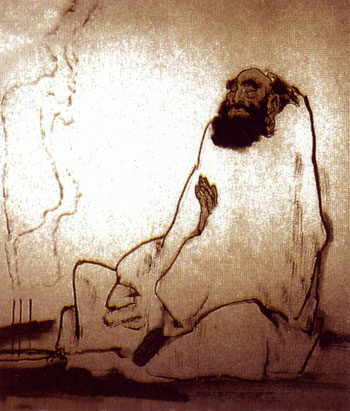
In Zen we talk a lot about life and death and sometimes we may take this literally. But life and death happen in this moment, right in front of our eyes. Life and death point to the never-ending appearance and disappearance of phenomena. If you pay attention when you are sitting in meditation, and even sometimes in your daily life, you will notice that thoughts appear and thoughts disappear, that feelings appear and feelings disappear, that impulses appear and impulses disappear, that sounds appear and sounds disappear.
In the Wake-Up sermon Bodhidharma said, Sages don't consider the past. And they don't worry about the future. At some level we understand that yes, the past is gone and the future is not yet here, and that all we have is the present, or so we think. Bodhidharma continues, Nor do they cling to the present. That is a very interesting point: we have to let go even of the present. How do we not cling to the present? He concludes, And from moment to moment they follow the Way. Moment to moment; sounds familiar? If we keep a clear mind then each moment is enough, each action is complete. Moment by moment there is no life, no death. Moment by moment just like this is the truth.
|
|
|
|
|
|
|
|
|
|
|
|
|
|
|
|
Buddhist Teaching About Death

The truth is, we don’t know what happens when we die. The Buddhist teaching about death can be helpful in that it gives us a good feeling, some sense of comfort in this mystery. This framework that can be helpful in the grieving process, but the Buddha taught that originally there is no life or death. Our true self is infinite in time and space. Don’t Know Mind doesn't have a beginning or an ending.
Zen Master Seung Sahn’s teaching is to wake up in this moment and attain our true nature. When we keep a Don’t Know Mind we are addressing the big question of life and death moment to moment. The big meaning of a 49-day memorial ceremony is to wake up just now. Actually, whenever anybody dies, they are teaching us that we must wake up, because our lives only occur in this moment [snaps fingers]. Just that.
Everyday Zen mind
- By Zen Master Jok Um
|
|
|
|
|
|
|
|
|
|
|
| |
|
|
|
|
|
|
|
|
|

|
|
|
|
|
|
|
Where Zen Practice Begins

Everything in this world – the sun, the moon, the stars, mountain, rivers, and trees – everything is constantly moving. But there is one thing that never moves. It never comes or goes. It is never born and it never dies. What is this not-moving thing? Can you tell me? If you find that, you will find your true self and attain universal substance. But understanding cannot help you find that point. Even one hundred Ph.D.’s will not show you your true nature.
Our true nature cannot be found in books and academic studies because our true nature is before speech and words. It is before thinking. If you find your before-thinking point, then it is possible to attain your true self. So, a long time ago, Descartes said, “I think, therefore I am.” This is where philosophy begins. But if you are not thinking, what? This is where Zen practice begins.
How Can I Be of Of Service?

A couple of years ago I was walking to to work, a walk which takes me through several busy intersections in Cambridge. My mind was filled with the day's activities and plans. Consequently, my attention at that particular moment was not with the moment as it was unfolding. I was crossing a particularly busy intersection; a blind man was walking beside me, waving his stick back and forth. As this man was walking, his stick hit a car parked right in the crosswalk. I glanced over and you could see an expression of "what is this?" on his face. He didn't know how to overcome this obstacle in his path. Perhaps he thought he had lost his way or that he had not counted his steps correctly. As I watched, another man looked up and said: "Three steps to the left, around the front of the car." And I said to myself, "That's wonderful. But where was l?"
This is our practice. It is not some great, expanded commitment to the universe. It's not some hope of how things can be in the future. It is not some longing for things to be as they were in the past. It is only in this moment, responding spontaneously: what can each one of us do that is of service? Our task as we go through our daily lives is to cultivate this practice that we are already connected with. Only don't know; how can I be of service? I often wish it were more complicated, but just can't seem to find more to it. That's all there is.
The Root of Suffering
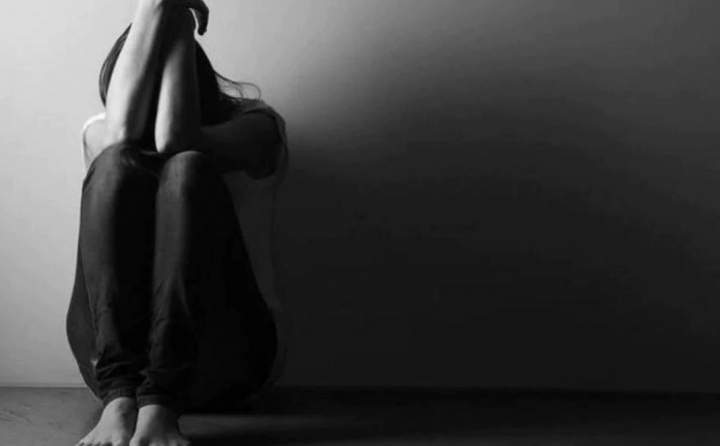
When our situation is always smooth and with good feeling then we can grow complacent. Keeping an alert and awake mind, fresh with inquiry, isn’t always so easy then. When we find ourselves stuck, suffering, wishing things to be other than they are, then this difficult situation often has us looking for some way to resolve it. Questioning arises. And what a gift this is!
As we keep asking — going past the complaints and protests of how unfair life can be, seeing that we’re not completely satisfied by intellectual understanding — then we can address the root of suffering. We can address the questions that we all share as human beings: What is this life and death business? What is my job in this life? What is suffering, and what is this that suffers? What is this I? What is other than I?
The Thirteenth Gate
When you are asked a kong-an and you hit the floor, at that moment you become one with the kong-an. You actually become one with the whole universe. That doesn't have correct or incorrect, like or dislike. It’s already complete. There is incredible power in that moment of complete not knowing. When we return to don’t know, our job is always right in front of us. In fact, our whole life is just that moment! But if we immediately re-enter the realm of like or dislike, then we can never find our job.
The “Mind Meal” of our school has 12 courses, 12 gates. These 12 gates are actually no different than oureveryday life. This is what I call the 13th gate! That’s your moment-to-moment life. How do you respond to that kong-an? Do you like it? Do you dislike it? Do you dodge difficult situations? Do you try to create comfortable situations? Practicing helps us to see that the 13th gate is always right in front of us, but with this gate, there isn't a Zen master sitting across from us to verify whether or not we are correct. That’s when kong-an practice takes root, becomes real and is not just an exercise in how clever we can be. If we are willing to respond directly out of our intuition, our innate wisdom, then any kong-an is no problem.
|
|
|
Kill or Not Kill - That's a Big Question
ZEN MASTER SOENG HYANG, May 31, 1981
Dear Bobby,
I am writing with many questions, and also bringing greetings however! First, my questions...
I've been confronted with the problem of what course of action to take in the event of a military draft or a war: to fight or not to, which comes down to killing or not killing.
Killing is O.K. with me, and so is not killing. If a man wanted to kill all beings, and the only way I could stop him was to kill him, I would kill for all beings. So, if for example the Soviets invaded another country and harassed and murdered as they've done, I would not hesitate to stop the Soviets, killing some soldiers to save the whole Afghan people, or Polish people, or whatever, if this was the only way. Similarly, if our country started victimizing another country like we did in Vietnam, I would not hesitate to use any means to stop that abuse.
Bobby, is this delusion? What comments and suggestions have you? I guess I am confused as to how I may best serve all people.
Many months ago you asked me, "How old are you?" My answer: "LOOK AT YOUR WRISTWATCH!"
Trying to hit Saturn with a toothpick?
I eagerly await your reply! I hope to come to Yong Maeng Jong Jin this Spring, and do hard training!
Hapchang,
John
December 20, 1980
Dear John,
It was nice to hear from you again. How are you? Thanks for your letter.
You asked me about how to make important decisions in your life. Kill or not kill -- that's a big question! There's something I've been learning about questions: whether they are big or small, philosophical or concrete, important or unimportant, they are all very easy to answer if your life's direction is clear.
So, John, I ask you, why are you alive? What is the purpose of your life? You said that if you had to, you would kill for all beings. Killing for all beings is O.K., but there is something else you must do first. you must kill yourself to save all beings from any kind of suffering. How can you kill yourself? How can you completely understand your true self and end the life of delusive "I" that prevents you from being able to answer all of life's questions?
You must find out how to understand your true self. This week at the Zen Center we had a seven-day Yong Maeng Jong Jin. It was a very wonderful and strong retreat. Everyone was supporting each other and there were Dharma Talks that answered all questions as completely as possible in the realm of speech. I hope you will soon have more time to formalize your practice. I think that will help you very much.
In the meantime, join the Army if you believe in the causes you will be fighting for. If you don't believe in the causes, stay home and fight for a cause you believe in. In other words, do not be lazy. Pay attention to life, and try to help other people as well as you can.
I asked you how old you were, and you told me to look at my wristwatch. I didn't ask .you for the time! Zen is only keeping a clear mind. Ask your clear mind, and maybe next time you can give me a better answer.
I hope to see you soon. Have a nice Christmas vacation.
Sincerely,
Bobby
Zen Master Soeng Hyang talks about trusting and believing in your true self.
Zen Master Soeng Hyang speaks about correct situation, correct relationship and correct function and what is "don't know"
|
|
|
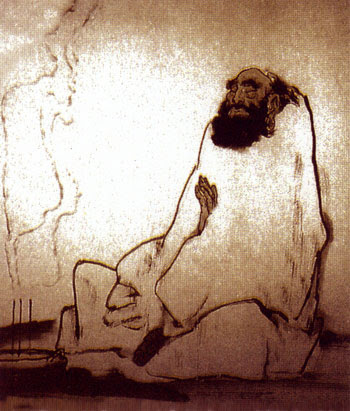
Life and Death
In the Wake-Up sermon Bodhidharma said, Sages don't consider the past. And they don't worry about the future. At some level we understand that yes, the past is gone and the future is not yet here, and that all we have is the present, or so we think. Bodhidharma continues, Nor do they cling to the present. That is a very interesting point: we have to let go even of the present. How do we not cling to the present? He concludes, And from moment to moment they follow the Way. Moment to moment; sounds familiar? If we keep a clear mind then each
moment is enough, each action is complete. Moment by moment there is no life, no death. Moment by moment just like this is the truth.
From Buddha's Enlightenment Day Speech 2011 by José Ramirez JDPSN
Primary Point Fall 2017, Volume 34, Number 3
Our Original Luminous Nature
 Buddha’s great question was a different kind of tracing back—tracing suffering to its source, but it was a moment of perceiving light, the pure light of the morning star, that opened his mind and enabled him to see that the source of our suffering is that we have lost touch with our original luminous nature, that we have somehow forgotten that our nature is already complete. The deeper we go in our practice the more clearly we realize the truth of our own nature, and the need to continue to practice in order to sustain and further deepen this realization and keep our mind-light shining. Buddha was outdoors, sitting under a tree, when he saw the star and all nature became clear.
Buddha’s great question was a different kind of tracing back—tracing suffering to its source, but it was a moment of perceiving light, the pure light of the morning star, that opened his mind and enabled him to see that the source of our suffering is that we have lost touch with our original luminous nature, that we have somehow forgotten that our nature is already complete. The deeper we go in our practice the more clearly we realize the truth of our own nature, and the need to continue to practice in order to sustain and further deepen this realization and keep our mind-light shining. Buddha was outdoors, sitting under a tree, when he saw the star and all nature became clear.By Zen Master Hae Kwang
Life is Zen

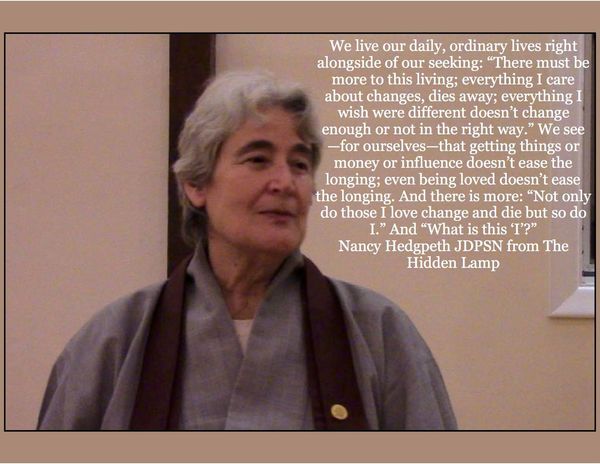
 The Bodhisattva of the Toll Gates
The Bodhisattva of the Toll Gates
Zen Master Seung Sahn and four of his students were traveling down Route 95 from Providence to New York to visit the Chogye International Zen Center. Soen Sa Nim chatted with his students as they drove, answering questions and giving advice. They came to a toll booth. They gave the toll operator some money and waited for her to give them change. One of the students traveling with Soen Sa Nim said to her “Nice day, isn’t it?” She agreed, but added, “Where did all this wind come from?” After she gave them their change, they drove off. The car was silent for a while until Zen Master Seung Sahn looked at the student and said “That was no ordinary woman at the toll booth. That was Kwan Seum Bosal asking you a great question: ‘Where did all this wind come from?’ You must always be alert to the teaching that comes your way. Put down your mind and you can see what’s actually in front of you.
So I ask you ‘Where did all this wind come from?'"
How Can We Make Harmony?
Meditation Frustration
 For me, it is putting down the concept of perfecting at all and starting every day from the very beginning. If I start every day from the very beginning then I have no chance to perfect my meditation. I’m in the same situation as a newcomer who just received an orientation talk, only my legs feel better. I don’t know how to meditate, I have no meditation skills. There is only one thing I have: it's a decision. The decision to meditate, the decision to put everything down, the decision to return to this very moment with a wordless question. It's only because of this decision that I can meditate. I never perceive a moment when my mind catches something and starts to move. I can only perceive a moment when it stops. It's like finding myself at the crossroads. Should I continue to follow this thought? Should I continue to nourish this feeling? Well, I could, and sometimes it would be very nice to, sometimes it feels so important to, but there is a decision. So I let go, so I put down whatever my mind is holding at the moment and for a short while I’m a newborn baby buddha. Dooooon’t know.
For me, it is putting down the concept of perfecting at all and starting every day from the very beginning. If I start every day from the very beginning then I have no chance to perfect my meditation. I’m in the same situation as a newcomer who just received an orientation talk, only my legs feel better. I don’t know how to meditate, I have no meditation skills. There is only one thing I have: it's a decision. The decision to meditate, the decision to put everything down, the decision to return to this very moment with a wordless question. It's only because of this decision that I can meditate. I never perceive a moment when my mind catches something and starts to move. I can only perceive a moment when it stops. It's like finding myself at the crossroads. Should I continue to follow this thought? Should I continue to nourish this feeling? Well, I could, and sometimes it would be very nice to, sometimes it feels so important to, but there is a decision. So I let go, so I put down whatever my mind is holding at the moment and for a short while I’m a newborn baby buddha. Dooooon’t know.
Being the Commitment
What Am I?
Teachings of Zen Master Man Gong
(Part 2)
What Am I? The Necessity of Finding Your True Self
6. If I shout someone’s name and they immediately answer, “Yes!” – that is true nature. True nature has no birth or death. It can’t catch fire, get wet, or be cut with a knife. It is completely free and without hindrance.
7. Just like the prisoner screaming as he is dragged, twisting behind a horse, the chains of karma drag us down the road of suffering. Repeatedly, we follow the cycles of life, sickness, old age and death. Only your wisdom sword can cut these chains.
8. No matter how well educated or respected you are, if you haven’t resolved the great question of life and death, you are like a person who has lost their mind.
9. When Sakyamuni Buddha was born, he pointed with one hand to the sky and the other to the ground and said, “Between the heavens above and the earth below, only ‘I’ am holy.” This ‘I’ means the true nature.
10. Everyone already has Buddha nature (true nature) but they cannot become Buddha because they do not understand themselves.
From the book, The Teachings of Zen Master Man Gong.
Time Will Not Wait For You
Teachings of Zen Master Man Gong
What Am I?
The Necessity of Finding Your True Self
1. It is said that human beings are the most precious of all things because they can attain their true nature.
2. True nature means total freedom, being in charge of one’s life, yet human beings are rarely free anytime or place. They cannot control their lives because their deluded thinking (small ‘I’) becomes the boss while their true nature is just a slave.
3. The small ‘I’, deluded thinking, is the offspring of true nature. Deluded thinking arises from selfish desire. True nature (clear mind or bodhisattva mind) is correct mind, which has no beginning and no end; it has no existence or extinction, yet it lacks nothing.
4. How is a human being who has lost sight of his true nature any different from an animal which only pursues sex and food instinctively? No matter how great or famous you are, if you do not attain your true nature, you are just like a molecule, subject to the four types of birth and death and the six realms of existence (samsara).
5. In our world most people live together, sharing a lifestyle, mindlessly following their karma. Their lives just happen, without direction. They don’t see the terrifying thing waiting for them. When death comes, they are blind to what lies ahead.
From the book, The Teachings of Zen Master Man Gong.
The Tool For Enlightenment
Never Unemployed
Zen Master Seung Sahn said there are two central questions for every human being.
Number one: What are you doing right now?
Number two: Why do that?
These two questions point to how we live our life, moment to moment, and our great vow. The meaning behind “life after life” is “What are you doing right now?” This is not an abstract, philosophical concept. It’s not anything you have to believe. It’s something you have to wake up to, moment to moment. That’s our human beings’ job. That’s Buddha’s job; that’s my job; that’s your job... you don’t have to worry about being unemployed. We’re born into an ocean of suffering. So our vow is without bounds.
(Zen Master Dae Kwang: from a talk in 2015)
Now Is The Time
 We follow Buddha’s example. Buddha means awakened. If you are going to awaken, tomorrow is too late. One hour from now is also too late. Even one second from now is too late. Just this moment, wake up. I hope each of you will make correct practice in your life and attain this wake-up. Then one more step is most important: use this wake-up to help all beings.
We follow Buddha’s example. Buddha means awakened. If you are going to awaken, tomorrow is too late. One hour from now is also too late. Even one second from now is too late. Just this moment, wake up. I hope each of you will make correct practice in your life and attain this wake-up. Then one more step is most important: use this wake-up to help all beings. By Zen Master Wu Bong
This Moment Is Our Life If you go into the realm of metaphysics about life after life after life, you're in the world of supposition. But take everything about our past actions creating a future life and substitute the word “moment” for “life”. Our action in this moment creates our life in the next moment. Bring it down from the metaphysical to the very practical, “What am I doing right now?” because this moment, my action in this moment, brings about my life in the next moment. If you go into the realm of metaphysics about life after life after life, you're in the world of supposition. But take everything about our past actions creating a future life and substitute the word “moment” for “life”. Our action in this moment creates our life in the next moment. Bring it down from the metaphysical to the very practical, “What am I doing right now?” because this moment, my action in this moment, brings about my life in the next moment. Whatever it is that you are facing in this moment, how you deal with it, creates how you are reborn into the next moment. So it's not metaphysical, it's very practical and down to earth. This relative self is the idea that you carry from moment to moment to moment. So your actions create your life. There's a saying that says, “You make, you get.” What you get is your life. You get to choose. |
The Teacher and the Thief
A long time ago, there was a Buddhist teacher who was wise and compassionate. He had many bright students, he taught them meditation and other practices. They held him in high respect. But there was this one thing in the monastery that they couldn't tolerate.
There was a young disciple who would often steal from his brother monks, he would steal their money, he would steal small things in the monastery.
Monks complained about him to their teacher "Master! he steals things from us, please advise him"
The wise one said "Give him some time, he will learn. I'll talk to him", wise one called the young disciple after everyone had left "These things are puny, only right practice will give you what you crave for, work hard on your practice, stop stealing things.
The young monk prostrated before the wise one in respect and left, he was ashamed of his habit, he was determined to try and stop his habit. He was an intelligent and good person, like most people who come on the path, but it was too difficult for him to change his mental pattern (isn't it often difficult for everyone).
Few days passed without any trouble, but he could not resist the temptation for long, he fell and unfortunately for him he was caught again, monks paraded again to the wise one taking the culprit along, the wise one dismissed them saying "Give him some time he will learn".
They caught him few more times and brought him in front of the wise one for justice, he would simply dismiss them saying "Don't mind him, do your practices. He will learn to behave". Monks were all growing impatient with their teacher for his strange behavior. They couldn't understand why he wouldn't send him out of the monastery.
It happened once again, they submitted the young monk in front of him, and not surprisingly he neglected the case without saying much. This time monks were determined, they wanted a permanent decision from the Guru's part. They said in chorus "Master we can't take it anymore, you can keep us here or this thief, we will not stay here if he stays".
"Alright then, you all may leave. I'm not going to abandon him." came the reply, monks were all surprised at the unexpected answer.
"Oh master! Oh master! Please" pleaded the disciples in a gentle voice.
"You are all good disciples, you will get admission into any monastery. But he won't be accepted anywhere else, I'm not going to leave him." said the compassionate one.
The young monk who was watching all this commotion was touched by the compassion of the great one, his resolve was so strong that he gave up stealing thereafter for good.
Great Effort
 Great Effort, I think of as the hinge-point of our practice. If we don't have this great effort, then we really don't have a practice. Because unless we bring our practice to the difficult parts of our lives, it's not much of a practice. In fact, what often seems to happen is many people will practice when things get difficult in their life, but as soon as things start to get better, then they don't feel like they need it anymore.
Great Effort, I think of as the hinge-point of our practice. If we don't have this great effort, then we really don't have a practice. Because unless we bring our practice to the difficult parts of our lives, it's not much of a practice. In fact, what often seems to happen is many people will practice when things get difficult in their life, but as soon as things start to get better, then they don't feel like they need it anymore.
So in a sense for a Zen practice, great effort really needs to be applied when things are going well, because that's the time it's easy to fall asleep. When we're suffering it's easy to keep this great question, “What am I? What is this life about?” But when things are going well, we can get very complacent.
Zen Master Seung Sahn used to say, “A good situation is really a bad situation, and a bad situation is really a good situation.” This is in a sense what that means. If things are going well, you can easily lose your direction. You can easily fall into selfishness and self-centeredness. But when things are difficult, then you have to call into question all your different assumptions, your different beliefs, and ideas.
By Zen Master Bon Soeng
True Compassion
What Am I?
New Year Poem

From Zen Master Seung Sahn 1980
Every year, every year,
New year, new year.
Every year, every year,
Old year, old year.
Old year gone.... New year.
New year gone... Old year.
Who made that?
You? I? We? They?
No, no, no!
Then God? Buddha? Time? Space?
No, no, no!
Then the sun? The moon?, The earth? The stars?
No, no, no!
Then the mountain? The river? The tree? The flower?
No, no, no!
Then the elephant? The dog? The cat? The mouse?
No, no, no!
Then, "Three pounds of flax?"
"Dry shit on a stick?"
"Katz?"
"Mu?"
No, no, no!
Then what?
The snow sparkles in the dawn.
In the morning 1972 plus 8.
Success
 In Zen we say, “Don’t want anything, then you get everything”—but nobody believes that. Most people want something, not knowing that the very thing they want is not good for them. Now you have a choice—don’t know what you want and get busy; know what you want 100 percent, go for it, get it and then lose it; or, don’t want anything and get everything. Three kinds of success—which one do you like?
In Zen we say, “Don’t want anything, then you get everything”—but nobody believes that. Most people want something, not knowing that the very thing they want is not good for them. Now you have a choice—don’t know what you want and get busy; know what you want 100 percent, go for it, get it and then lose it; or, don’t want anything and get everything. Three kinds of success—which one do you like?By Andrzej Stec JDPSN
Attachment = Suffering
Wanting Enlightenment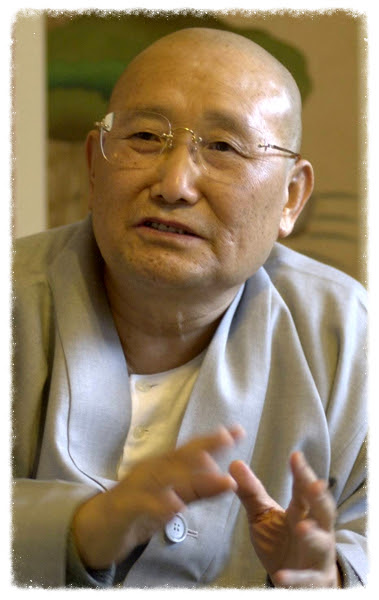
If you want enlightenment, this enlightenment is far, far away. If you don’t want enlightenment, you can see, you can hear, you can smell, everything is enlightenment. So put it all down—“I want something.” If you keep I-me-my mind and do zen in this way, for infinite time you cannot get enlightenment. If you make I-me mind disappear, then already you have enlightenment. O.K.?
Only go straight—don’t know. Don’t check your mind; don’t check your feelings; don’t check your understanding; don’t check something. Only go straight— don’t know; for 10,000 years try, try, try. That is very important.
By Zen Master Seung Sahn
Dharma Obligation
I have been teaching Zen students on this mountain for almost forty years. Many people come to visit me thinking they are visiting a Zen Master but they only see my form body, the house where my true nature lives. They don’t see my true nature. That is not a problem but it means that they have not seen their true nature. Because they haven’t seen their true nature, they cannot see their parents, siblings, wife and children, or anybody. They wander through life in vain, like a crazy person. We have to say that this is truly a world of darkness. Students who receive my teaching must do it with sincerity and dedication, not forgetting the methods I used. Ultimately, being sincere and dedicated is paying back your Dharma obligation, so you will not waste your practice or suffer a mental loss.
Because they haven’t seen their true nature, they cannot see their parents, siblings, wife and children, or anybody. They wander through life in vain, like a crazy person. We have to say that this is truly a world of darkness. Students who receive my teaching must do it with sincerity and dedication, not forgetting the methods I used. Ultimately, being sincere and dedicated is paying back your Dharma obligation, so you will not waste your practice or suffer a mental loss.
Back to the Shore
 Our mind is always making something, and then we enter the ocean of suffering. So we want to go back to the shore. However, even if our direction is OK, we still have a problem. We make “I,” and as a result we perceive the ocean as suffering. Within this I-view, we cannot see clearly and we think that the other shore is far away. Then it is impossible to see that the way out of suffering is nearby. No matter how much effort we put forth, we cannot reach the other shore. Only when our wisdom sword cuts through the wall of I-my-me, then the sandbank appears clearly. This “I” is created by our thinking. So, only cut off your thinking and return to before thinking. Then you can see clearly and walk the bodhisattva path on the sandbar, transcending the ocean of suffering.
Our mind is always making something, and then we enter the ocean of suffering. So we want to go back to the shore. However, even if our direction is OK, we still have a problem. We make “I,” and as a result we perceive the ocean as suffering. Within this I-view, we cannot see clearly and we think that the other shore is far away. Then it is impossible to see that the way out of suffering is nearby. No matter how much effort we put forth, we cannot reach the other shore. Only when our wisdom sword cuts through the wall of I-my-me, then the sandbank appears clearly. This “I” is created by our thinking. So, only cut off your thinking and return to before thinking. Then you can see clearly and walk the bodhisattva path on the sandbar, transcending the ocean of suffering.
Our Intuition
Some of our actions are not visible to others, and the results will only appear in the future, but inside we know already what we are doing.
Our true self, our intuition, is guiding us.
If we are aware of this guide—in touch with it, hearing it—then there should be no problem deciding what to do. There should be no problem in quickly understanding the situation, choosing the correct action, keeping the correct action from moment to moment.
By Ja An JDPSN
Feeding The Wolves
Recently I heard a story about two wolves. In this story, a grandfather was teaching his grandchildren about life. He said to them, “A fight is going on inside me. It is a terrible fight between two wolves. One wolf expresses fear, anger, envy, sorrow, regret, greed, arrogance, hatefulness and lies. The other wolf expresses joy, peace, love, hope, humbleness, kindness, friendship, generosity, faith and truth. These wolves are always fighting with each other. My grandchildren, this same fight is going on inside of you. And not just you, but inside every other person too.”
The children thought about it for a minute. Then one child asked his grandfather, “Which wolf will win the fight?” The grandfather replied, “The one you feed will win.”
So which wolf do we choose to feed? Do you see that we have choice? If we cling to our anger, how can we let go of it and feed instead the wolf of kindness and understanding?
The only way we can choose wisely is to come to the place before anger and kindness. In our Zen school we call that place “before thinking.” And then we return to moment-mind. Remember that you have a choice which wolf you feed. When you are fully alive in each moment, then the two wolves of opposites completely disappear. When we do anything 100 percent, then opposites disappear. Then our correct situation, correct relationship and correct function become clear. And then we can really help this world.
From Inka Speech by Myong Hae Sunim, JDPS
The Limits of Thinking
I Have No Time To Practice
 A student once asked Su Bong Zen Master at a dharma talk: his friend wanted to come to the Zen center to practice but he had no time, because he had a family, he had a job, he did volunteer work and he had to attend the functions of his company. What could he do?
A student once asked Su Bong Zen Master at a dharma talk: his friend wanted to come to the Zen center to practice but he had no time, because he had a family, he had a job, he did volunteer work and he had to attend the functions of his company. What could he do?"You all understand by your experience, without me telling you, how much time you waste wondering should I be doing this or that. But if you just do it, it would all be finished. There would be no extra baggage. That name is meticulous, meticulous and complete. So I said put it all down, that means your checking mind."
By Zen Master Su Bong
Place of Practice
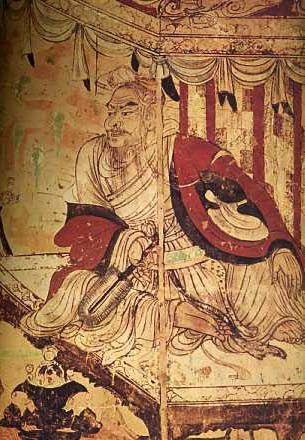
A young bodhisattva named Shining Adornment once asked Vimalakirti, “Layman, where are you coming from?” “I’m coming from the place of practice." “The place of practice—where is that?" Vimalakirti said, “Mind itself is the practice hall.”
Lose Everything

Why Ask Why?
Moment World

This moment is very important. It has everything in it. in this moment there is infinite time, infinite space. In this moment there is truth, correct life and the Bodhisattva Way. This moment has everything. Also this moment has nothing. If you attain this moment you attain everything. This is the teaching of Zen Buddhism.
By Zen Master Seung Sahn
Being Clear
| Barry Briggs, JDPSN on Being Clear |
Middle Path
 In this world and in our life, many things are in duality: negative and positive, good and bad. When we hear something negative, we would probably feel bad. At that moment, our life is not on the middle path. Learning Zen gives us a way out; to be free from good and bad, free from our emotions. It leads us back to the middle path.
In this world and in our life, many things are in duality: negative and positive, good and bad. When we hear something negative, we would probably feel bad. At that moment, our life is not on the middle path. Learning Zen gives us a way out; to be free from good and bad, free from our emotions. It leads us back to the middle path.
Clear View
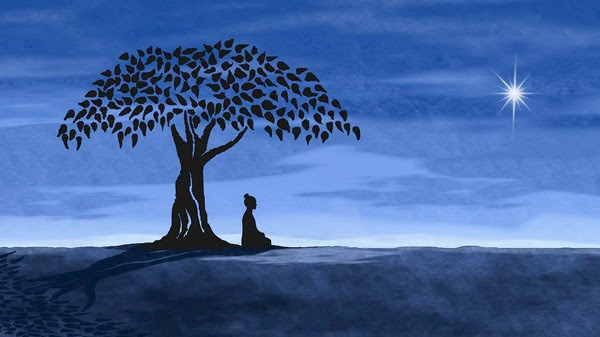 If we have some idea of what we are or who we are, it is usually connected with some view of the world. It may be a religious view, political view, a man or woman view, a black or white view, even a Zen view. All of these views have their place, but if we are attached to any view, then we can longer longer see the truth. This is ignorance. We ignore the truth by seeing the world through our own attached view. And many times we think our view is correct. This attachment results in fear and anger which causes many human beings to respond to the world that results in much suffering.
If we have some idea of what we are or who we are, it is usually connected with some view of the world. It may be a religious view, political view, a man or woman view, a black or white view, even a Zen view. All of these views have their place, but if we are attached to any view, then we can longer longer see the truth. This is ignorance. We ignore the truth by seeing the world through our own attached view. And many times we think our view is correct. This attachment results in fear and anger which causes many human beings to respond to the world that results in much suffering. If we are sincere and diligent in our practice, the way of ignorance, anger and greed, can turn into wisdom, love and compassion. If we can return to our true self and perceive the truth of this world, without attaching to any view, then it is possible to help ourselves and all those around us.
By Jason Quinn, JDPSN
Excerpt from Buddha's Enlightenment
Great Love
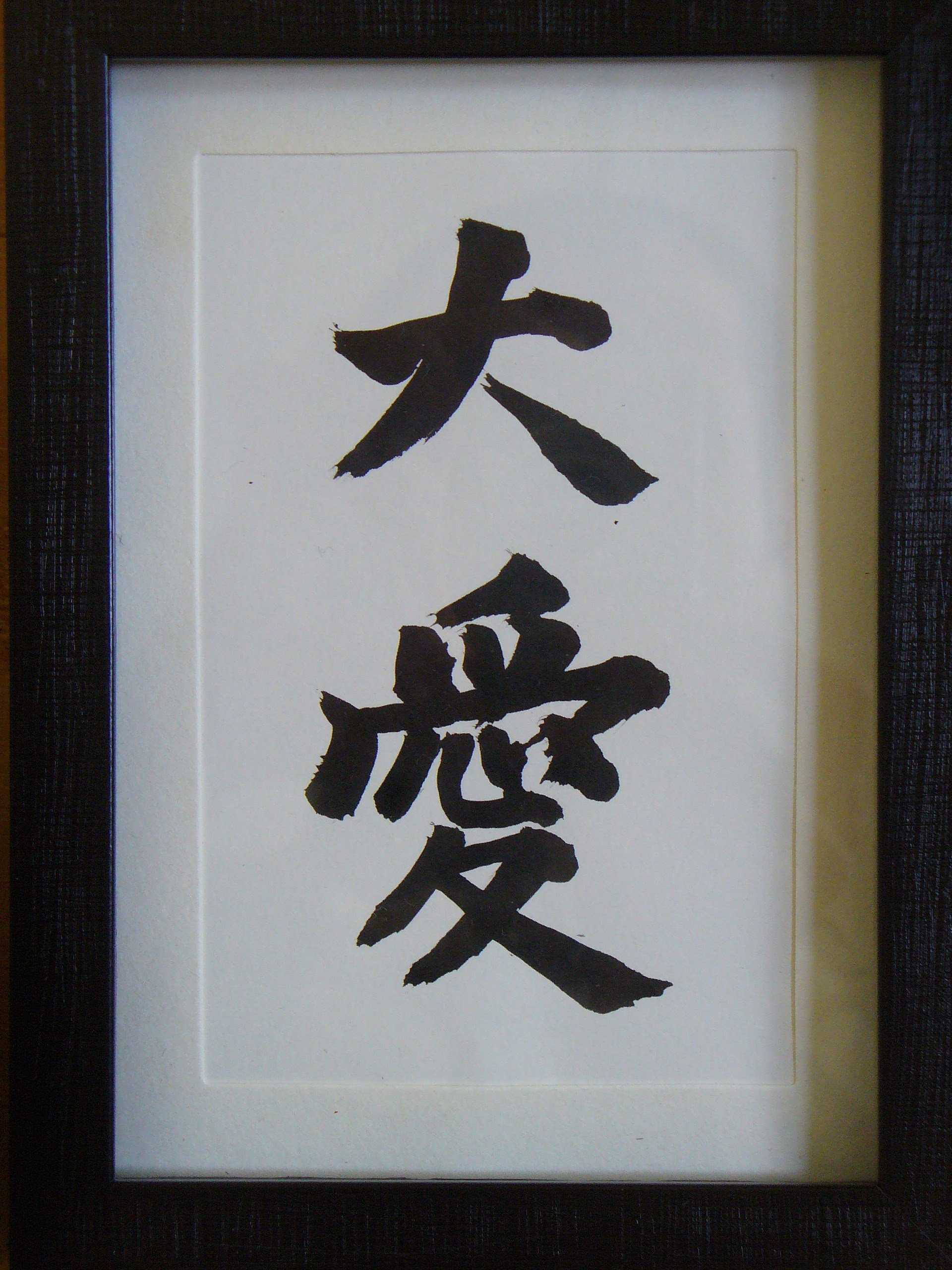 In our teaching tradition, we have a wonderful tool for working with our tendency to move away which is don’t know. It’s through the practice of don’t know that we can discover a genuine way to be safe in the world. Don’t know brings us closer to whatever the world presents, moment to moment. Often, we respond to life’s demands by saying to ourselves, “I don’t know what this is and I don’t like it,” or we say, “I know what this is, I’ve been here before, and I don’t like it.” And we move away.
In our teaching tradition, we have a wonderful tool for working with our tendency to move away which is don’t know. It’s through the practice of don’t know that we can discover a genuine way to be safe in the world. Don’t know brings us closer to whatever the world presents, moment to moment. Often, we respond to life’s demands by saying to ourselves, “I don’t know what this is and I don’t like it,” or we say, “I know what this is, I’ve been here before, and I don’t like it.” And we move away.
Help Each Other
 The Avatamsaka Sutra says, "If you want to understand the Buddhas of the past, present, and future, then you should view the nature of the whole universe as being created by mind alone."
The Avatamsaka Sutra says, "If you want to understand the Buddhas of the past, present, and future, then you should view the nature of the whole universe as being created by mind alone."
We all understand what this sutra is talking about on some level. If we are happy and active, then the whole world around us becomes joyous. But, when we are sad or depressed, then even the clouds look sad and the rain turns into the teardrops of the world. Everything becomes a problem, and we are passive spectators in a world not of our making.
 Practicing Together
Practicing Together

Teach Me the Dharma
"When Dae Ju first came to Zen Master Ma-jo, the Master asked him, 'What do you want from me?'
Dae Ju said, 'I want you to teach me the Dharma.' 'What a fool you are!' said Ma-jo. 'You have the greatest treasure in the world within you, and yet you go around asking other people for help. What good is this? I have nothing to give you.'
'What a fool you are!' said Ma-jo. 'You have the greatest treasure in the world within you, and yet you go around asking other people for help. What good is this? I have nothing to give you.'
Dae Ju bowed and said, 'Please, Master, tell me what this treasure is.'
Ma-jo said, ''Where is your question coming from? THIS is your treasure. It is precisely what is making you ask the question at this very moment. Everything is stored in this precious treasure-house of yours. It is there at your disposal, you can use it as you wish, nothing is lacking. You are the master of everything. Why, then, are you running away from yourself and seeking for things outside?'
Upon hearing these words, Dae Ju attained enlightenment."
--Dropping Ashes on the Buddha: The Teaching of Zen Master Seugn Sahn
The Power of Sitting
| The Power of Sitting |
The Great Bodhisattva Way
 One, two, three. Where do these numbers come from? You already understand. Children want candy; business people want money; scholars want to become famous. There are many kinds of people and many directions. Where do they finally go?
One, two, three. Where do these numbers come from? You already understand. Children want candy; business people want money; scholars want to become famous. There are many kinds of people and many directions. Where do they finally go?If you attain this point, you attain human nature and universal substance. If you attain universal substance, you can see and hear clearly, and your emotions, will, and wisdom can function correctly. Then your life is correct and you can help all beings. This is called the Great Bodhisattva Way.
Zen Meditation
 Zen meditation is involved with cultivating the practice of present centeredness and looking into the question of self by asking, "What am I?" Initially, one does this by setting aside some time every day to sit quietly and attempt to remain present with a sense of inquiry into the nature of self. Zen meditation, however, is not limited to a formal exercise done in a sitting position. One is encouraged to cultivate the attitude of present centeredness and self-inquiry in all of one’s daily activities. Ultimately, everything is Zen, even driving your car Zen, eating Zen, and working Zen.
Zen meditation is involved with cultivating the practice of present centeredness and looking into the question of self by asking, "What am I?" Initially, one does this by setting aside some time every day to sit quietly and attempt to remain present with a sense of inquiry into the nature of self. Zen meditation, however, is not limited to a formal exercise done in a sitting position. One is encouraged to cultivate the attitude of present centeredness and self-inquiry in all of one’s daily activities. Ultimately, everything is Zen, even driving your car Zen, eating Zen, and working Zen.By Zen Master Wu Kwang
The Practice of Service
 This is our practice. It is not some great, expanded commitment to the universe. It's not some hope of how things can be in the future. It is not some longing for things to be as they were in the past. It is only in this moment, responding spontaneously: what can each one of us do that is of service?
This is our practice. It is not some great, expanded commitment to the universe. It's not some hope of how things can be in the future. It is not some longing for things to be as they were in the past. It is only in this moment, responding spontaneously: what can each one of us do that is of service?
| Thinking During Meditation |
The Thirteenth Gate

The “Mind Meal” of our school has 12 courses, 12 gates. These 12 gates are actually no different than our everyday life. This is what I call the 13th gate! That’s your moment-to-moment life. How do you respond to that kong-an? Do you like it? Do you dislike it? Do you dodge difficult situations? Do you try to create comfortable situations? Practicing helps us to see that the 13th gate is always right in front of us, but with this gate there isn't a Zen master sitting across from us to verify whether or not we are correct. That’s when kong-an practice takes root, becomes real and is not just an exercise in how clever we can be. If we are willing to respond directly out of our intuition, our innate wisdom, then any kong-an is no problem.
Strong Sitting
 Strong sitting means not checking your mind and feelings. Everyone sometimes has many thoughts and feelings while sitting. This is correct. Don’t worry. But many people check themselves. “I am no good. What do other people think of me? I am always thinking. How can I cut off all thinking? How do you only go straight? How do you put it all down?” etc. This is being attached to thinking. Thinking itself is not bad or good. Just don’t be attached to thinking. Don’t worry about everything. Thinking is thinking; feeling is feeling. Only go straight—don’t know. That is strong sitting.
Strong sitting means not checking your mind and feelings. Everyone sometimes has many thoughts and feelings while sitting. This is correct. Don’t worry. But many people check themselves. “I am no good. What do other people think of me? I am always thinking. How can I cut off all thinking? How do you only go straight? How do you put it all down?” etc. This is being attached to thinking. Thinking itself is not bad or good. Just don’t be attached to thinking. Don’t worry about everything. Thinking is thinking; feeling is feeling. Only go straight—don’t know. That is strong sitting.
Cake is Delicious
As a great Zen master Roshi Taji approached death, his senior disciples assembled at his bedside. One of them, remembering the roshi was fond of a certain kind of cake, had spent half a day searching the pastry shops of Tokyo for this confection which he now  presented to Roshi Taji. With a wan smile the dying roshi accepted a piece of the cake and slowly began munching it. As the roshi grew weaker, his disciples leaned close and inquired whether he had any final words for them.
presented to Roshi Taji. With a wan smile the dying roshi accepted a piece of the cake and slowly began munching it. As the roshi grew weaker, his disciples leaned close and inquired whether he had any final words for them.
"Yes" the roshi replied.
The disciples leaned forward eagerly. ’
"Please tell us!"
"My, but this cake is delicious!" And with that he died.
| Zen Master Dae Bong - Thinking |
Are You Enlightened?
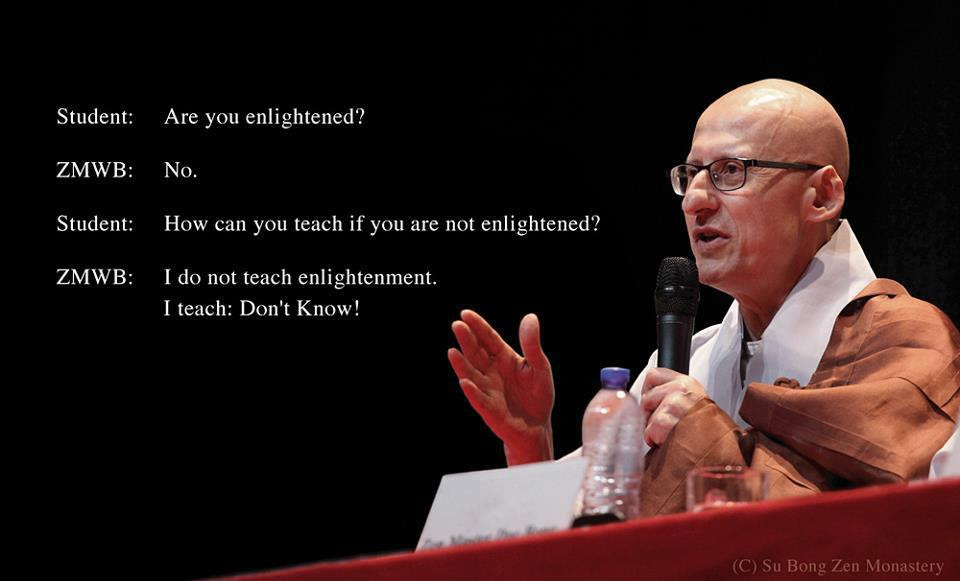
Clear Direction
 So when your direction is clear, it is already beyond all the opposites. Life and death, possible or impossible, good or bad, right or wrong—it’s already beyond all the opposites. And what kind of direction you have is also important. Sentient beings are already numberless, they cannot be counted. Is it possible to save them all from the suffering?
So when your direction is clear, it is already beyond all the opposites. Life and death, possible or impossible, good or bad, right or wrong—it’s already beyond all the opposites. And what kind of direction you have is also important. Sentient beings are already numberless, they cannot be counted. Is it possible to save them all from the suffering?When your direction is clear, actually it doesn't matter that your wish or hope is going to come true or not. It’s not about success or failure. It’s not about truth or untruth. It’s not about coming true or not coming true. It just keeps going on straight, for infinite time. Which means, actually, you’re the direction, the direction itself is you.
Correct Action Sequence
 Do you know an elevator’s job? Many people can push the button wanting the elevator, but the elevator only comes when the proper floor and direction appears. When the elevator is going up, it only stops for up-buttons and coming down it only stops for down-buttons. The elevator understands its correct action sequence. That is only going straight.
Do you know an elevator’s job? Many people can push the button wanting the elevator, but the elevator only comes when the proper floor and direction appears. When the elevator is going up, it only stops for up-buttons and coming down it only stops for down-buttons. The elevator understands its correct action sequence. That is only going straight.If you put your mind in order, then it works the same as a computer. Then you will understand your correct action sequence. That is correct opinion, correct condition, and correct situation—Zen mind. Also, that is great love and great compassion mind. If you want that mind you must make your “I, My, Me” disappear. If you don’t hold your opinion, your condition or your situation, then your original high-class computer will work correctly. So, you must practice every day.
Karma
During a talk at the Cambridge Zen Center Ken Kessel, JDPSN is asked to explain Karma.
Holiday Offering
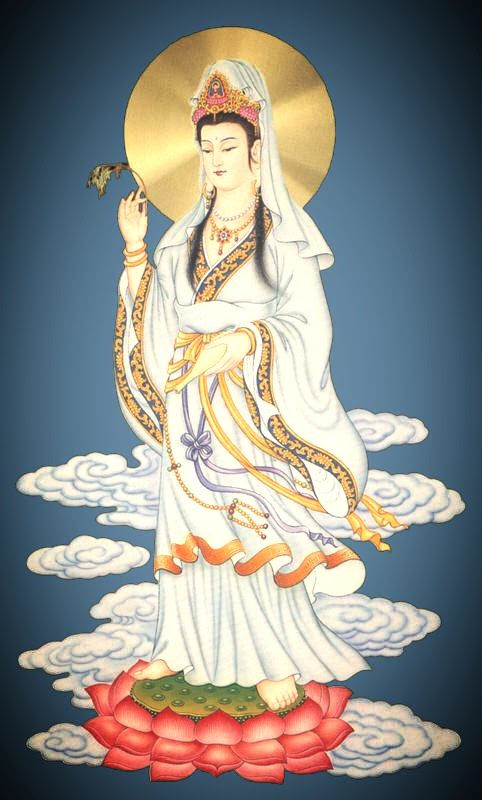
Great Faith, Great Courage, Great Question all need to be realized each moment of our day. The ability to access these three abilities totally depends on effort and vow, and the effort and vow comes from the ability to access. If that sounds like a circle, it’s because it is. The circle is our breath, our wisdom, our innate Buddha nature.
So in this time of increased darkness in the Northern hemisphere, both literally and karmically, let us all access our Great Round Circle, our continuous breath. Consciously allow your attention to enter all of the events that offer themselves to you. Breathe each thing in with curiosity and warmth, knowing that your ability to digest it all lies right there with every inhalation.
Let’s remember that we are all Buddha’s, that we are all capable of embracing the confusion and pain. Embrace it with your warmth, unconditionally. Ask how you can help and be willing to be perhaps confused and frightened. We are all on this earth of ours for one purpose, and not a moment needs to go by when we don’t remember this. What is this purpose, how can we help?
With Total Gratitude for Our Wonderful Sangha,
Soeng Hyang-Bobby

Don't Know and Right View
Big Suffering
 Often Zen Master Seung Sahn said, "If the direction of your life is clear, then your whole life is clear. If your direction is not clear, then your life will always be a problem."
Often Zen Master Seung Sahn said, "If the direction of your life is clear, then your whole life is clear. If your direction is not clear, then your life will always be a problem."The reason we practice Zen is to understand ourselves completely, attain our original nature, and save all beings from suffering. This is our direction - the original job of all human beings. In this there is no "I, my, me." If we have "I, my, me" then we will get suffering, guaranteed.
One time a monk came to Zen Master Seung Sahn and said that he wanted to stop being a monk because the monk's life for him was a living hell. Zen Master Seung Sahn replied, "If your direction is clear, then even living in hell is not a problem." This means if you want to help this world, then even suffering should not be a hindrance. Most important is direction. If your direction is clear, then the suffering you experience becomes "Big Suffering" and helps this whole world. So, what do you want?
By Zen Master Dae Kwang
Thousand Year Treasure
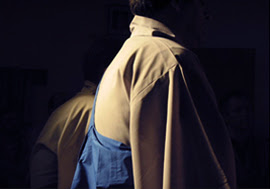 The good news is that there is another way. As the calligraphy states, “Three days of looking into self, a thousand year treasure.” Three days of looking into the self means right now in this moment, what is this? What am I doing right now? What is this “I”? If we look at that with sincerity, honesty, and openness, it is possible to return to the mind before thinking. Before thinking is our original nature. In our school we call it “don’t know”.
The good news is that there is another way. As the calligraphy states, “Three days of looking into self, a thousand year treasure.” Three days of looking into the self means right now in this moment, what is this? What am I doing right now? What is this “I”? If we look at that with sincerity, honesty, and openness, it is possible to return to the mind before thinking. Before thinking is our original nature. In our school we call it “don’t know”.“Don’t know” plus action is human being’s function. When we return to this moment, we also return back to the realm of name and form. Here we can use name and form in a clear and helpful way rather than name and form pulling us around and around. That even means using this “I”. Attachment to “I” results in I like and I don’t like. Using this “I” results in how may I help. Every moment. Every breath. How may I help? The name for that is Great Love, Great Compassion, the Great Bodhisattva Way. And that is a thousand year treasure for the whole universe.
By Jason Quinn, JDPSN
Excerpt from Inka Speech
Published by Primary Point Summer 2015, Volume 32, Number 2
Kill and Eat The Buddha
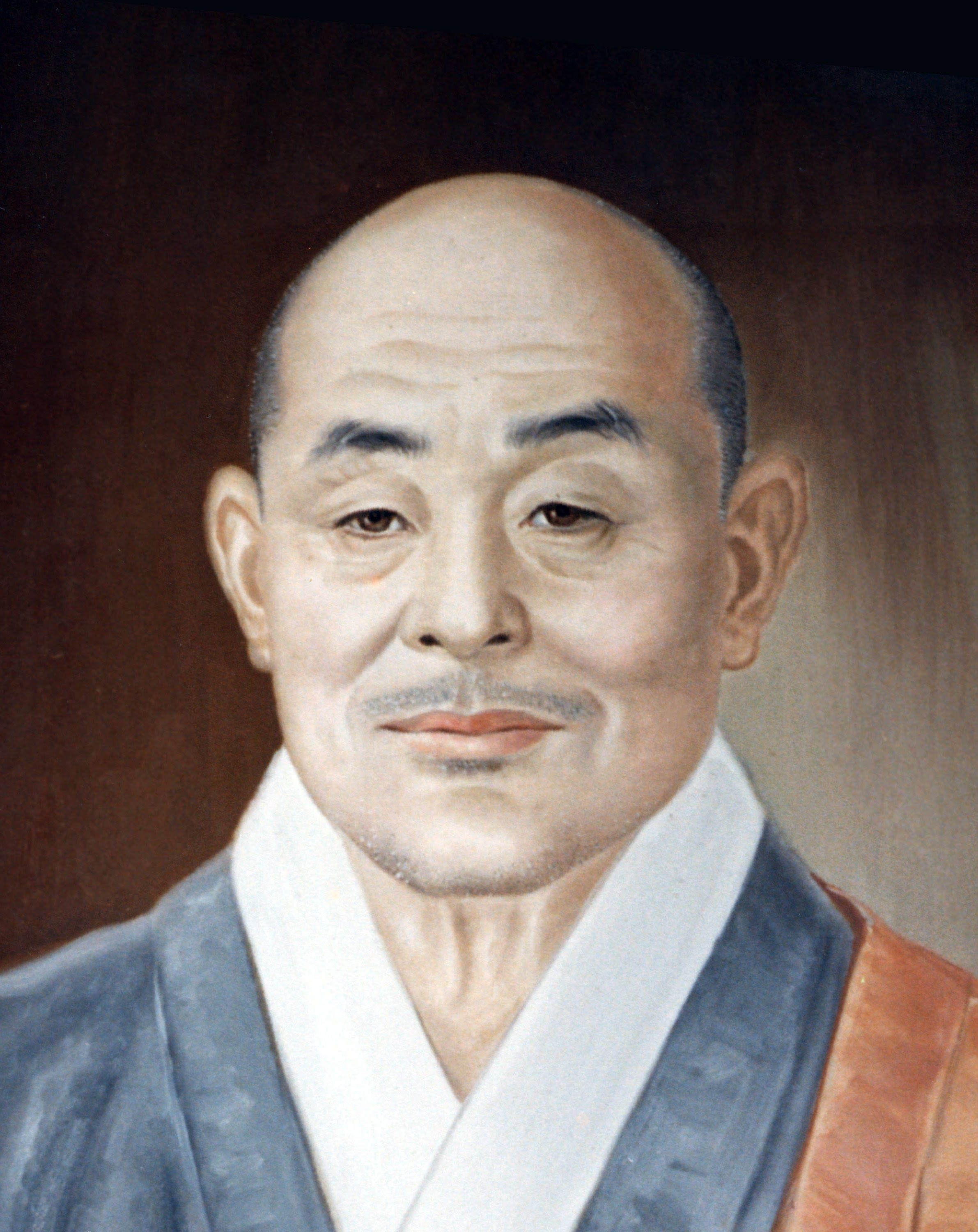
The lecturer said, "All of you must study hard, learn Buddhism, and become as big trees, with which great temples are built, and as large bowls, able to hold many things. The verse says:
"Water becomes square or round according to the shape of the container in which it is placed. Likewise, people become good or bad according to the company they keep. Always keep your minds set on holiness and remain in good company. In this way, you will become great trees and containers of Wisdom. This I most sincerely wish."
Everyone was greatly inspired by this lecture. At this point, the Sutra Master turned to Zen Master Kyong-Ho, who was visiting the temple, and said, "Please speak, Master Kyong Ho; everyone would like to hear your words of wisdom."
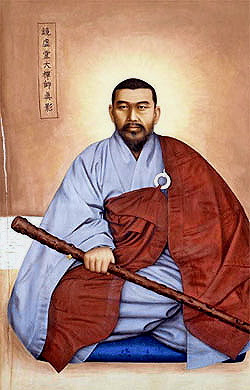 The Master was quite a sight. He was always unshaven and wore robes that were tattered and worn. Although he at first refused, after being asked again and again, he reluctantly consented to speak.
The Master was quite a sight. He was always unshaven and wore robes that were tattered and worn. Although he at first refused, after being asked again and again, he reluctantly consented to speak."All of you are monks. You are to be great teachers, free of ego; you must live only to serve all people. Desiring to become a big tree or a great container of Wisdom prevents you from being a true teacher. Big trees have big uses; small trees have small uses. Good and bad bowls both have their uses. Nothing is to be discarded. Keep both good and bad friends; this is your responsibility. You must not reject any element; this is true Buddhism. My only wish is for you to be free from discriminating thoughts." Having completed his talk, the Master walked out the door, leaving the audience astonished. The young Man-Gong ran after him, and called out, "Please take me with you; I wish to become your student."
The Master shouted at him to go away, but the child wouldn’t listen. So he asked, "If I take you with me, what will you do?"
"I will learn. You will teach me."
"But you are only a child. How can you understand?"
"People are young and old, but does our True Self have youth or old age?"
"You are a very bad boy! You have killed and eaten the Buddha. Come along."
My Pain Is Very Expensive

Life Is A Dream
| Life Is A Dream
|
Sayings of Zen Master Kyong Ho

7) Don't expect others to follow your direction. When it happens that others go along with you, it results in pride. So an ancient once said, "Use your will to bring peace between people."
Inner Peace

Nature of Suffering
| Zen Master Wu Bong on the Nature of Suffering |
Clear Karma

Excerpt from Desire for Fame: Unsurpassed Humility by Andrzej Piotrowski JDPSN
Desire for Fame
 satisfied and always hurting others.
satisfied and always hurting others.
What is This?
| Zen Master Seong Hyang talks about "What Is This" .mov
|
The Ancestral Teacher

The Ancestral Teacher’s coming from the West only means that winter is cold and summer is hot, night is dark and day is light. It’s just that we vainly set up meaning where there is no meaning, create concern where there is no concern, impose “inside” and “outside” where there is no inside or outside, and talk endlessly of this and that where nothing exists.
By Zen Master Ta Hui
From Swampland Flowers
Why We Sit

How do you keep not-moving mind? Put down your opinion, condition and situation moment-to-moment. When you are doing something, just do it. This is everyday Zen. Sitting meditation is a particular kind of meditation, unique to Zen, that functions centrally as the very heart of the practice.
By Zen Master Seung Sahn
Living in a Dream

By Tim Lerch JDPSN
Teachings of Zen Master Seung Sahn
Third anniversary of Zen Master Seung Sahn's death
|
Digest Your Karma

Why is it difficult to practice? We face a lot of pressure in this world to go fast, and we've become very complicated. We have to make our minds simple, present, and attentive. If we don’t make our minds simple, it’s very difficult to pay attention to what we’re doing. If you can wash the dishes, drive to work, do your job, and take care of your family with attentiveness, then everything is your gate. Everything is your way in, and every action can be saving ourselves and saving others.
By Zen Master Dae Bong
The Most Important Thing About Zen
Wanting Enlightenment

Only go straight—don’t know. Don’t check your mind; don’t check your feelings; don’t check your understanding; don’t check something. Only go straight— don’t know; for 10,000 years try, try, try. That is very important.
By Zen Master Seung Sahn
The Beginning Of The End Of Suffering
So that is the great question. What are we before we made up everything else? You know the monologue that has been playing in your head. We are always editing it, revising it, making up a story of who we are. But to try to arrive at the point where you can see what you are before you began to make up the story, that’s seeing true nature, the Buddha nature, and that’s the beginning of the end of suffering.

By Zen Master Hae Kwang
Your Family Doesn't Like You Practicing Buddhism
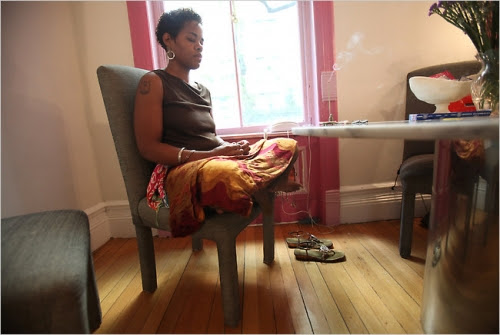
By Zen Master Su Bong
| Manifesting Your True Self
|
How To Extinguish Desires
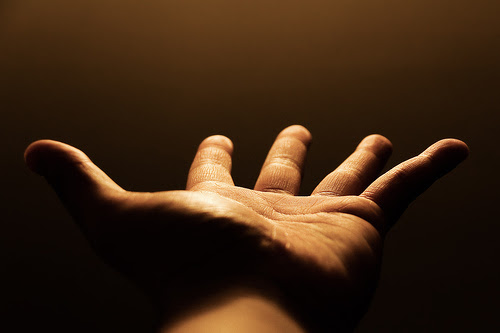
Commentary: Human life is "I want!" Even to direct yourself toward extinguishing desires is a want or desire. Strictly speaking, desire or even preference is not the problem. Clinging and self-centered craving is really the core of the issue. Why do "I want," and for whom? How do I use the energy of desire to go beyond just I, my, me? When hungry, eat; when someone else is hungry, give them food.
What Are You?

In this whole world everyone searches for happiness outside, but nobody understands their true self inside. Everybody says, “I” — “I want this, I am like that…” But nobody understands this “I.” Before you were born, where did your I come from? When you die, where will your I go? If you sincerely ask, “What am I?” sooner or later you will run into a wall where all thinking is cut off. We call this “Don’t know.”
Zen is keeping this “Don’t know” mind always and everywhere.
| Koen Vermeulen, JDPSN on This Moment and Love |
What is Primary Point?
I often talk about primary point. What is primary point? When you have a scale and there is nothing being weighed, the indicator points to zero. You put something on it, and the pointer swings to “one pound.” You take it off, the pointer goes back to zero. This is primary point. After you find your primary point, then good feelings come, bad feelings come, so your pointer swings in one direction or the other. But this doesn't matter. Don’t check it. When the feeling is over with, the pointer swings back to zero.
But if you haven’t found your primary point, then it is like taking a heavy object off of the scale and having the pointer stay at “ten pounds.” Or the pointer moves back only part-way, it doesn't go completely back to zero. Then you have a problem. Your scale does not weigh correctly. Maybe if you put a heavy object on it, it will break completely. So first you must find your primary point. Then you must keep it very strongly.
A taxi has weak shock absorbers, so it hits a small bump and bounces up and down. A train has strong shock absorbers, so it is very steady. If you keep your primary point, your mind-spring will become stronger and stronger. You will meet big problems and your mind will move less and less. A big problem comes, your mind moves, but soon returns to primary point. Finally your mind will be very strong; it will be able to carry any load. Then saving all people is possible.
| Zen Master Wu Kwang on Change and Suffering |
Good Situation or Bad Situation?
There is a Taoist story of an old farmer who had worked his crops for many years.  One day his horse ran away. Upon hearing the news, his neighbors came to visit. "Such bad luck," they said sympathetically. "Maybe," the farmer replied.
One day his horse ran away. Upon hearing the news, his neighbors came to visit. "Such bad luck," they said sympathetically. "Maybe," the farmer replied.
The next morning the horse returned, bringing with it three other wild horses. "How wonderful," the neighbors exclaimed. "Maybe," replied the old man.
The following day, his son tried to ride one of the untamed horses, was thrown, and broke his leg. The neighbors again came to offer their sympathy on his misfortune. "Maybe," answered the farmer.
The day after, military officials came to the village to draft young men into the army. Seeing that the son's leg was broken, they passed him by. The neighbors congratulated the farmer on how well things had turned out. "Maybe," said the farmer.
Perceiving Sound

Foreword from the KUSZ Chanting Book by Zen Master Seung Sahn
Direction In Your Practice
 Shortly before Zen Master Seung Sahn passed away, he was giving a Dharma talk.
Shortly before Zen Master Seung Sahn passed away, he was giving a Dharma talk.A student asked him, “How will we continue our practice after you die?”
Zen Master Seung Sahn answered: “If your direction is clear, your practice will become even stronger after I die. If your direction is not clear, your practice will die with me.”
No Meaning is True Meaning
|
Buddhist Teaching About Death
By Tim Lerch, JDPSN

Zen Master Seung Sahn’s teaching is to wake up in this moment and attain our true nature. When we keep a Don’t Know Mind we are addressing the big question of life and death moment to moment. The big meaning of a 49-day memorial ceremony is to wake up just now. Actually, whenever anybody dies, they are teaching us that we must wake up, because our lives only occur in this moment [snaps fingers]. Just that.
Where Zen Practice Begins
By Zen Master Seung Sahn
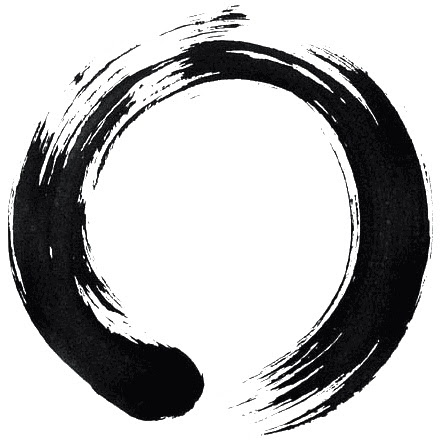
Which Style of Buddhism is the Best?

Student: Buddhism have Hinayana, Mahayana, Tibetan & Zen, how do I know
which is the best for me ?
Zen Master: (Pick up a glass of water) Please taste this. (Student then drink the glass of water.)
Zen Master: When you are drinking the water, you by yourself will know its cold and warm. (The student seemed to attain something and he continued his meal.)
When the student started to eat, Zen Master again asked: Is this Hinayana, Mahayana, Tibetan or Zen? (Student returned with a big smile and happily enjoyed his food.)
Commentary:
Buddhism consists of eighty four thousand teachings. They all help us to wake up from our illusion. If you only attached to words and its differences, you cannot taste the truth. Zen means put it into practice. Don’t indulge in empty talk. - Zen Master Dae Kwan
Two Kinds of Religion
By Zen Master Dae Bong
"I want something" religion means people want something - health, prosperity, peace, happiness, enlightenment, salvation, to go to heaven. Many kinds of wanting.
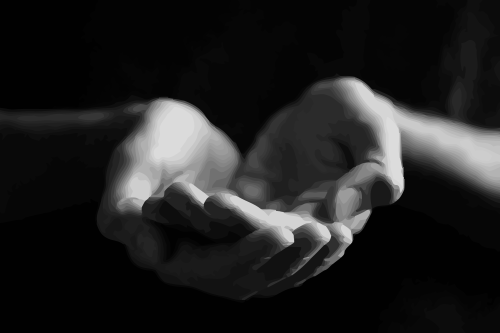 "Give to" religion means don't think about "my" situation. How can I help you? In "Give to" religion, you must put down your opinion, your condition, and your situation. Then you can realize your true nature. Just give to others whatever they need. Just do it!
"Give to" religion means don't think about "my" situation. How can I help you? In "Give to" religion, you must put down your opinion, your condition, and your situation. Then you can realize your true nature. Just give to others whatever they need. Just do it!This is Zen practice. Then before you enter the meditation room, you are already practicing correctly.
Observing Your Experience
| Observing Your Experience |
Don't Know Compass

If you want to get out of the ocean of suffering, only one kind of compass is necessary: your don’t know compass. It is always inside you. When you use this, then you can find that your correct direction always appears clearly in front of you, moment to moment.
From the Compass of Zen by Zen Master Seung Sahn
I Have No Time To Practice
By Zen Master Su Bong
 A student once asked Su Bong Zen Master at a dharma talk: his friend wanted to come to the Zen center to practice but he had no time, because he had a family, he had a job, he did volunteer work and he had to attend the functions of his company. What could he do?
A student once asked Su Bong Zen Master at a dharma talk: his friend wanted to come to the Zen center to practice but he had no time, because he had a family, he had a job, he did volunteer work and he had to attend the functions of his company. What could he do?"You all understand by your experience, without me telling you, how much time you waste wondering should I be doing this or that. But if you just do it, it would all be finished. There would be no extra baggage. That name is meticulous, meticulous and complete. So I said put it all down, that means your checking mind."
Becoming Human
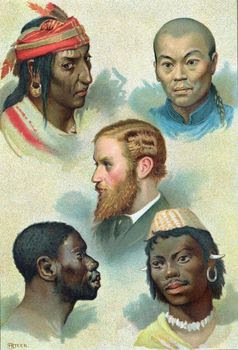
Four Seasons
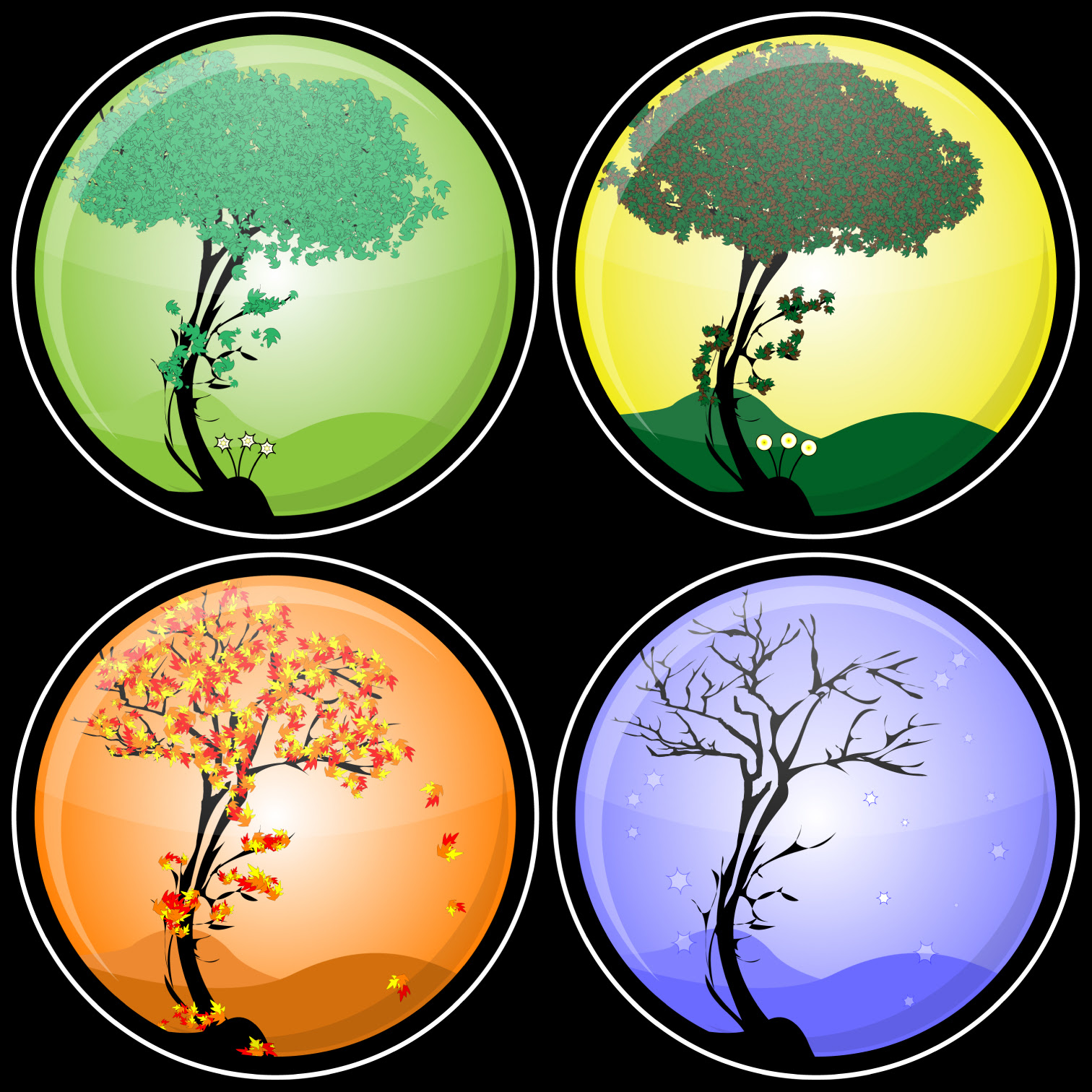 Flowers in Springtime
Flowers in Springtime
How Do You Practice?
 The more you practice, the more you have time for it. You are never too busy to practice. Never. You can always get up just a little bit earlier and at least sit on the cushion for 10 minutes, or at least bow for 15 minutes. You can always do that. And that means touching our true nature. So if you don’t touch your true nature, then what is your life?
The more you practice, the more you have time for it. You are never too busy to practice. Never. You can always get up just a little bit earlier and at least sit on the cushion for 10 minutes, or at least bow for 15 minutes. You can always do that. And that means touching our true nature. So if you don’t touch your true nature, then what is your life? So we have these ideas about these busy busy lives that we have, and that’s just an idea. “Oh I am so busy, I am so busy.” Is there anyone who never goes on Facebook? Never surfs the web? Never checks email? Never turns on the TV? Never listens to the radio? Never does things like that?
No. We all find a little time here and a little time there and a little time somewhere else. So why not find time to touch your true self, find your true nature? Why not do that? Try not practicing then see what happens to your life. If you have been practicing for a while and then you stop practicing, you very quickly find out why you practice.
Buddha Nature
By Zen Master Dae Kwang
 we want something: "I want to look like him";
we want something: "I want to look like him";
Human beings are always looking outside for the solution, when it is actually already inside themselves, if they would just look. The Buddha even said that he had no teaching to give. His job was to remove people’s misunderstanding, so they could see their own Buddha nature for themselves. The teaching of Buddhism and Zen is just a “pointing”; it points towards us having a direct experience of our Buddha Nature
What is Zen?
 |
| Zen Master Wu Kwang on Zen Practice
|
5/5/2014
Faith
| Zen Master Bon Yeon on Faith |
4/21/2014
Three Steps To The Left
 A couple of years ago I was walking to to work, a walk which takes me through several busy intersections in Cambridge. My mind was filled with the day's activities and plans. Consequently, my attention at that particular moment was not with the moment as it was unfolding. I was crossing a particularly busy intersection; a blind man was walking beside me, waving his stick back and forth. As this man was walking, his stick hit a car parked right in the crosswalk. I glanced over and you could see an expression of "what is this?" on his face. He didn't know how to overcome this obstacle in his path. Perhaps he thought he had lost his way or that he had not counted his steps correctly. As I watched, another man looked up and said: "Three steps to the left, around the front of the car." And I said to myself, "That's wonderful. But where was l?"
A couple of years ago I was walking to to work, a walk which takes me through several busy intersections in Cambridge. My mind was filled with the day's activities and plans. Consequently, my attention at that particular moment was not with the moment as it was unfolding. I was crossing a particularly busy intersection; a blind man was walking beside me, waving his stick back and forth. As this man was walking, his stick hit a car parked right in the crosswalk. I glanced over and you could see an expression of "what is this?" on his face. He didn't know how to overcome this obstacle in his path. Perhaps he thought he had lost his way or that he had not counted his steps correctly. As I watched, another man looked up and said: "Three steps to the left, around the front of the car." And I said to myself, "That's wonderful. But where was l?"
4/14/2014
Who is the Master?
 Zen Master Dae Kwan: "Who is the Master of this car?"
Zen Master Dae Kwan: "Who is the Master of this car?"
ZMDK: "You are not this car, why make car sound? You ask me the same question."
Student: "Who is the Master of this car?"
The car continues its way to Lantau Island………
Commentary: Do you have a Master? Between Question and Answer, Master already appears.
3/31/2014
Entering Buddahood
 A monk asked a master, "I just became a monk and would like to know how to enter Buddhahood."
A monk asked a master, "I just became a monk and would like to know how to enter Buddhahood."
The master said, "Do you hear the waterfall?"
"Yes I do" replied the monk.
The Master said, "Enter there.
3/17/2014
Zen Is Not Self Improvement
 Mind makes everything. If we don't get underneath that, it's all playing with the branches and the leaves. We can have a better life, but not really getting to the base of it. Our teaching is keeping a great question. The great question in Zen practice is "What Am I?". "What Am I?", you could say, is "What Is Mind?" Then bring that doubt to this very moment.
Mind makes everything. If we don't get underneath that, it's all playing with the branches and the leaves. We can have a better life, but not really getting to the base of it. Our teaching is keeping a great question. The great question in Zen practice is "What Am I?". "What Am I?", you could say, is "What Is Mind?" Then bring that doubt to this very moment.
We often say Zen is not really about self improvement. What is the self that you want to improve? Who are you really? That's the fundamental point. And until we really deal with that question, we are not really getting to the base of practice. Because our desires, our beliefs, and our opinions drag us around. Until we doubt them, investigate them, and use the moment as an investigatory tool, we're just playing around.
Moment to moment to moment to moment, we're being reflected and we always have an opportunity to ask the question and observe what is. As we are lost in our mind, in our thinking, our desire, our fears, our confusion, we don't see anything. It's all colored. It's all mirrors. So our teaching is to pierce through the mirror and come back to the moment.
3/10/2014
Freedom From Life and Death
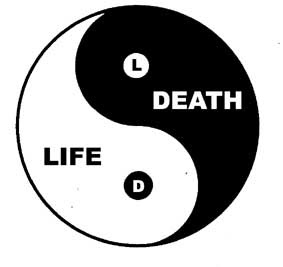
All these years of training taught me that there is just a fine thread between life and death. When you attain “before thinking,” there is no life, no death. I joined the Kwan Um School of Zen and learned from Zen Master Seung Sahn’s teaching. He said that just to perceive life is life, and death is death, is not enough. One more step is necessary.
This step is how to use our situation and karma to help all beings. That is great love, great compassion, the great Bodhisattva way. That is our direction. So if we practice, then we can use – and even change – our situation and karma for ourselves, as well as for the people around us. If we are not practicing, then we will be controlled by our karma and situation. We have no freedom from life and death. This is the most precious teaching I ever received.
3/3/2013
Thinking
Zen Master Dae Bong - Thinking
2/17/2014
Fifteen-Minute Practice
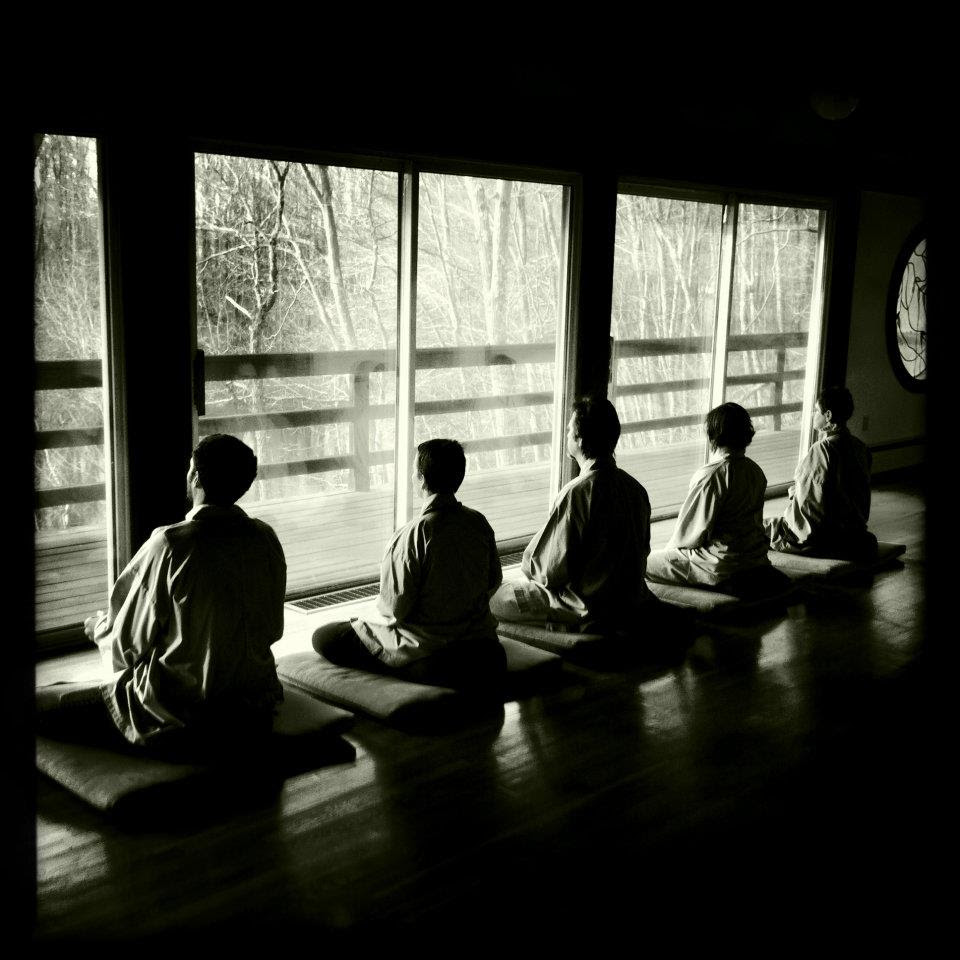 Almost everyone struggles to incorporate meditation practice into the flow of daily life. We say, “I’d like to practice, but can’t find the time,” and then we go about our daily affairs.
Almost everyone struggles to incorporate meditation practice into the flow of daily life. We say, “I’d like to practice, but can’t find the time,” and then we go about our daily affairs.
Some people have unrealistic expectations, thinking that if they don’t practice an hour every day, then perhaps they shouldn't practice at all. An hour is a lot of time, but almost everyone can find fifteen minutes for daily practice. And that’s enough. Follow this link to learn more.
2/10/2013
Dharma Obligation
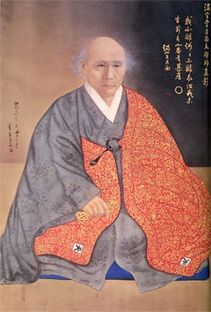 I have been teaching Zen students on this mountain for almost forty years. Many people come to visit me thinking they are visiting a Zen Master but they only see my form body, the house where my true nature lives. They don’t see my true nature. That is not a problem but it means that they have not seen their true nature.
I have been teaching Zen students on this mountain for almost forty years. Many people come to visit me thinking they are visiting a Zen Master but they only see my form body, the house where my true nature lives. They don’t see my true nature. That is not a problem but it means that they have not seen their true nature.
Because they haven’t seen their true nature, they cannot see their parents, siblings, wife and children, or anybody. They wander through life in vain, like a crazy person. We have to say that this is truly a world of darkness. Students who receive my teaching must do it with sincerity and dedication, not forgetting the methods I used. Ultimately, being sincere and dedicated is paying back your Dharma obligation, so you will not waste your practice or suffer a mental loss.
2/3/2014
Death of A Child and Karma
1/27/14
Bodhisattva Vow

The “Bodhisattva Vow” appears when suffering and love become one. This “Bodhisattva Vow” allows wisdom, compassion and generosity to deepen their roots into the ground of patience, endurance and urgency.
1/20/14
Enlightenment's Correct Job

Attaining my true self simply means moment to moment I keep a correct situation, correct relationship, and correct function in this world. I function clearly in this universe to save all beings.
So getting enlightenment and teaching other beings are not two things, because when you return to your mind before thinking arises, at that point, everything completely becomes one. At that point, how could you not help all beings? Your correct situation, correct relationship, and correct function appear clearly in front of you. Helping other beings is enlightenment's correct job - it is really not all that special. This is the true purpose of Buddhism.
From The Compass of Zen
1/13/14
Back to the Shore
Our mind is always making something, and then we enter the ocean of suffering. So we want to go back to the shore. However, even if our direction is OK, we still have a problem. We make “I,” and as a result we perceive the ocean as suffering. Within this I-view, we cannot see clearly and we think that the other shore is far away. Then it is impossible to see that the way out of suffering is nearby. No matter how much effort we put forth, we cannot reach the other shore. Only when our wisdom sword cuts through the wall of I-my-me, then the sandbank appears clearly. This “I” is created by our thinking. So, only cut off your thinking and return to before thinking. Then you can see clearly and walk the bodhisattva path on the sandbar, transcending the ocean of suffering.
1/7/14
How to Meditate
| Zen Master Bon Yeon on How to Meditate |
12/30/13
Mind Revolution

Buddha said very clearly that humans have five main desires: food, sleep, sex, money, fame. As we grow these five desires all become stronger. So the real Mind Revolution comes from looking back at ourselves. Looking into “I.” Don’t worry about finding anything. Just by looking into “I,” things change. You don’t have to believe in Buddhism. It is not Buddhism; it is just a human being having a big question. That’s all.
The five desires are important to satisfy, but if that is all your life is, you will never be happy. Look back at yourself. What am I? Don’t know. That is the true treasure—so valuable. Then you can change your relationship with the five desires and even use them to help all beings. That is the real Mind Revolution.
12/23/13
Our Intuition
By Ja An JDPSN

Some of our actions are not visible to others, and the results will only appear in the future, but inside we know already what we are doing. Our true self—our intuition—is guiding us. If we are aware of this guide—in touch with it, hearing it—then there should be no problem deciding what to do. There should be no problem in quickly understanding the situation, choosing the correct action, keeping the correct action from moment to moment.
12/16/13
The Great Bodhisattva Way
 One, two, three. Where do these numbers come from? You already understand. Children want candy; business people want money; scholars want to become famous. There are many kinds of people and many directions. Where do they finally go? If you attain this point, you attain human nature and universal substance. If you attain universal substance, you can see and hear clearly, and your emotions, will, and wisdom can function correctly. Then your life is correct and you can help all beings. This is called the Great Bodhisattva Way
One, two, three. Where do these numbers come from? You already understand. Children want candy; business people want money; scholars want to become famous. There are many kinds of people and many directions. Where do they finally go? If you attain this point, you attain human nature and universal substance. If you attain universal substance, you can see and hear clearly, and your emotions, will, and wisdom can function correctly. Then your life is correct and you can help all beings. This is called the Great Bodhisattva Way
12/9/13
Now Is the Time

Nobody guarantees our life. So if there is anything that you think may be useful, just now is the time to use it. In our life, past mind cannot be attained. Present mind cannot be attained. If you say “present,” it is already not present, already gone. If you lose this moment, you can never regain it.
We follow Buddha’s example. Buddha means awakened. If you are going to awaken, tomorrow is too late. One hour from now is also too late. Even one second from now is too late. Just this moment, wake up. I hope each of you will make correct practice in your life and attain this wake-up. Then one more step is most important: use this wake-up to help all beings.
12/2/2013
How Not to Burn Out
Barry Briggs JDPSN on How Not to Burn Out
11/25/13
Cookies and Compassion

A woman who goes into a cafe one morning to have a cup of coffee. She’s glad that she brought her bag of cookies along with her. She gets a newspaper, sits down, and starts enjoying the morning. Reading the paper. Picking up a cookie and eating it. Having a sip of coffee. There’s a guy at the counter next to her doing the same thing: having a cup of coffee, reading the paper. He reaches over and takes one of her cookies out of the bag, and she thinks, “That’s kind of strange—he didn't even ask.” She takes another cookie, and soon he takes another cookie too. They don’t say anything to each other; they just keep reading their papers. Now she’s getting kind of annoyed because she really wanted to enjoy her bag of cookies, but every time she takes one, he also takes one shortly afterwards. She’s getting more and more annoyed; she can’t believe he doesn't even say anything. She can’t say anything at this point either, it’s actually become too weird.
Finally it gets down to only one cookie left, and he quite casually, while still not looking up from his newspaper, breaks the cookie in half, eats half, and gently pushes the remaining half toward her. She’s totally enraged at this point and can’t believe somebody could do such a thing. She eats the remaining half cookie, finishes her coffee, throws down the newspaper and leaves the cafe. She gets in her car, reaches in her purse for her glasses, and there’s a bag of cookies there. The same kind she was just eating, in an unopened bag! She’s stunned. Her angry mind totally dissolves and she feels completely silly that, not only was she getting upset about this guy eating her cookies, but she was eating his cookies! And he was even so kind as to split the last one with her!
11/18/2013
Reminders of Our Original Nature

This world is already complete before anything can be said about it. Then why do we have sutras and dharma talk and articles, such as the one you are reading now? It is only because we forget that we are already complete that we have all these words. Dharma talks and kong-ans and poems and sutras and explications of sutras and poems are all only reminders.
If we attach to all these words and sentences we are lost, as these lines from one of Mu Mun's poems reminds us:
One who holds onto words is dead,
One who attaches to sentences is lost.
But if we let these words remind us of our original nature, the completeness of our mind before thoughts and words arise in it, if we perceive what these words are pointing to then let them go, even these words and sentences can help us fulfill our great vows to wake up from our dreams and help this world.
11/4/13
Regret
|
|
|
|
|
Keep Up With What is Happening at DVZC
Practice Schedule
Practice is held every Wednesday evening at the New Ark United Church of Christ, 300 E. Main St, Newark, DE 19711.
Practice begins at 6:30pm with a short orientation for beginners, followed by chanting. We then have two 25 minute periods of sitting meditation with a 10 minute period of walking meditation in between.
Free Meditation Instruction sessions will be scheduled as requested. Send an email to DVZCinfo@gmail.com and ask to be added to the next instruction class.
There is no fee to attend our practice, you do not have to be a member.
Monkey Mind Zen,
is a DVZC satellite.
The group meets in Philadelphia.
For information about their practice visit:










 By
By 
 By
By 







 by
by 





 by
by 






